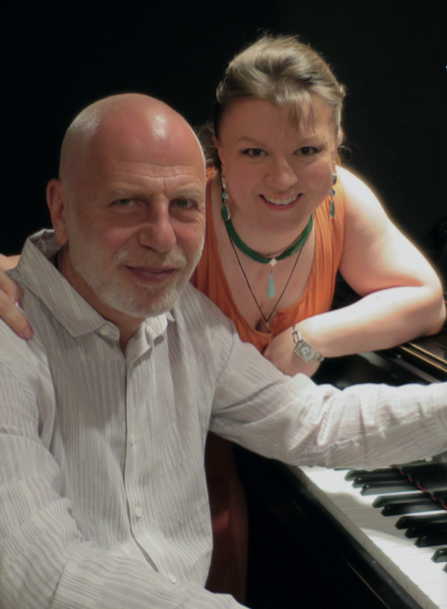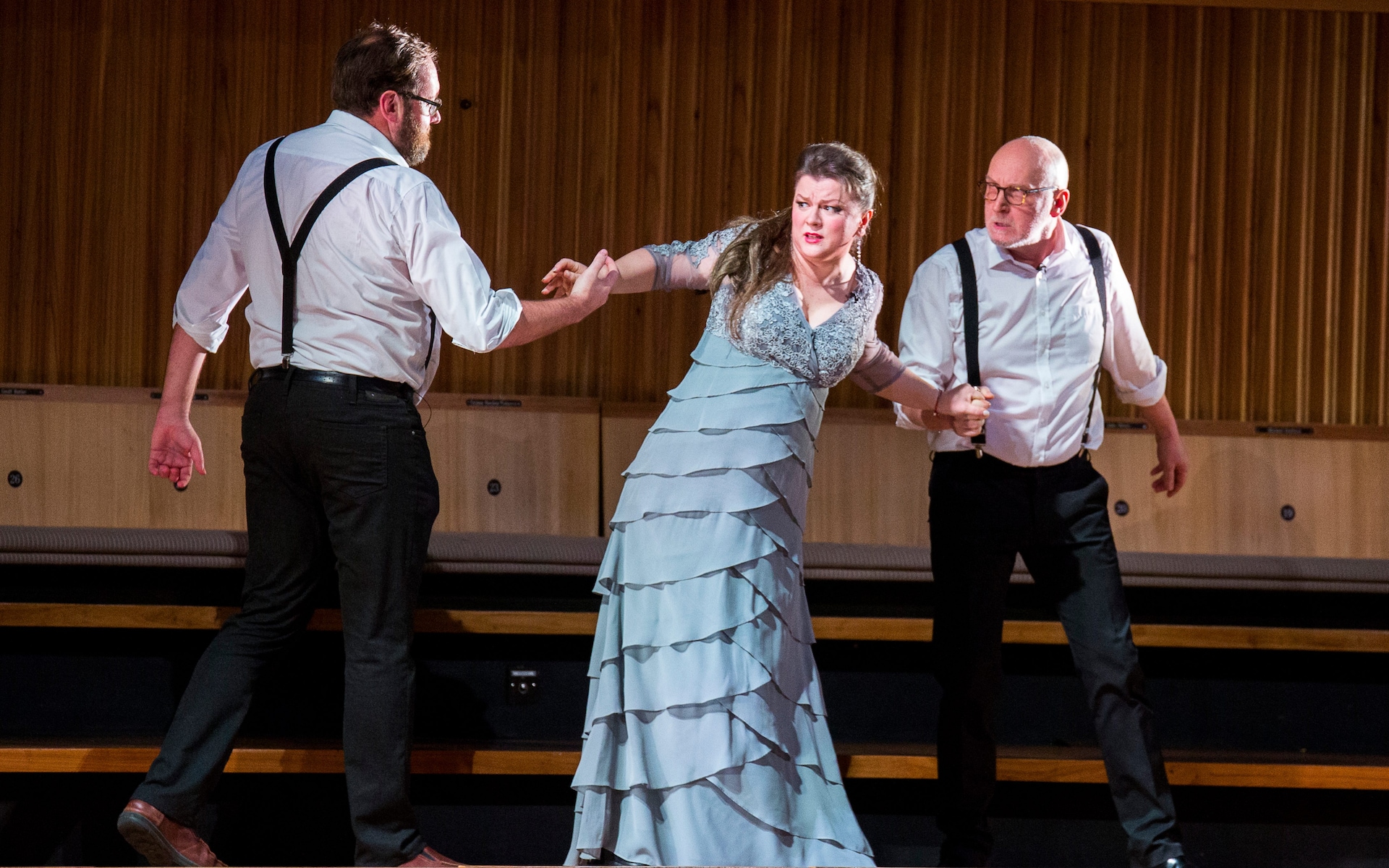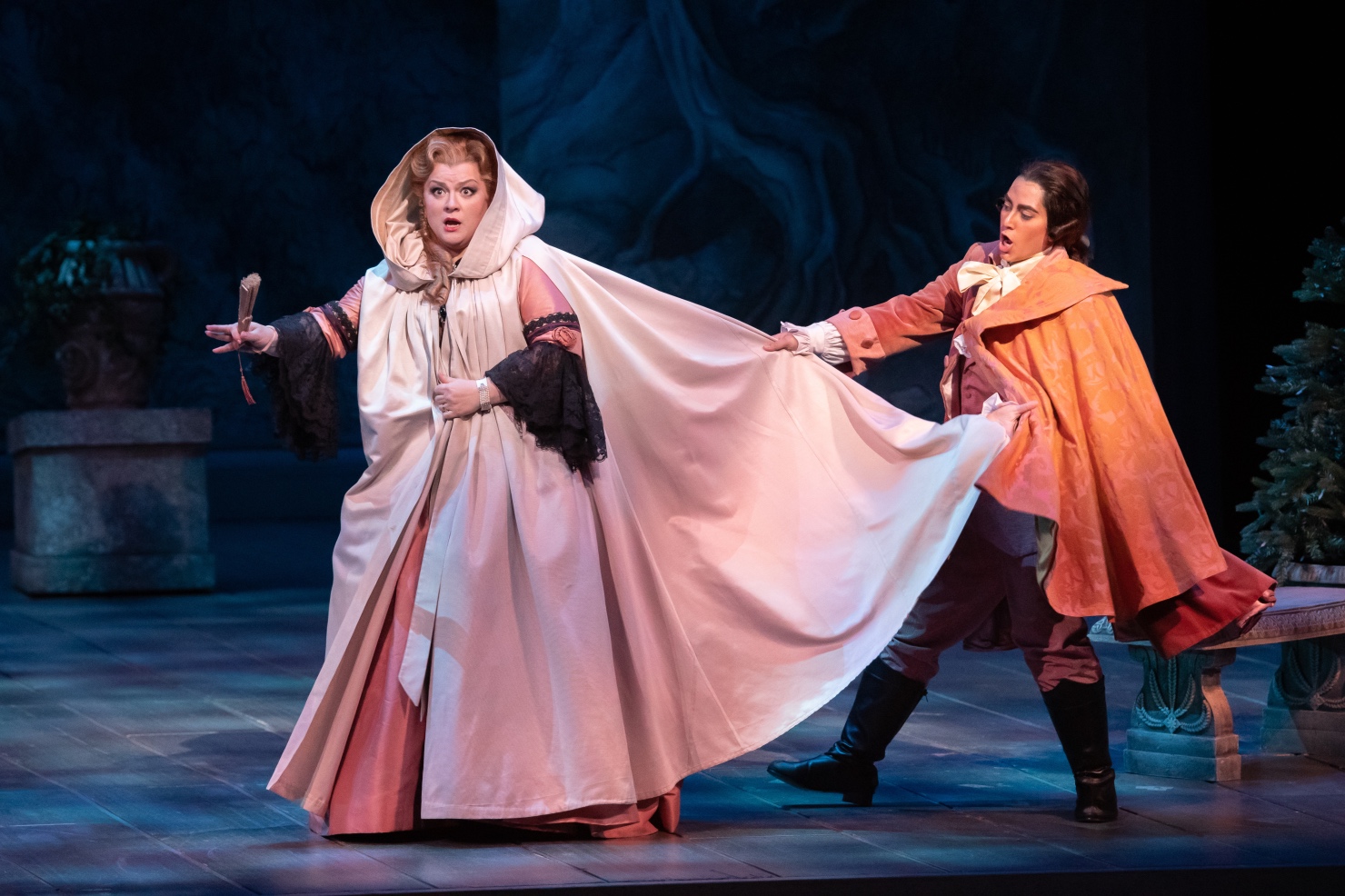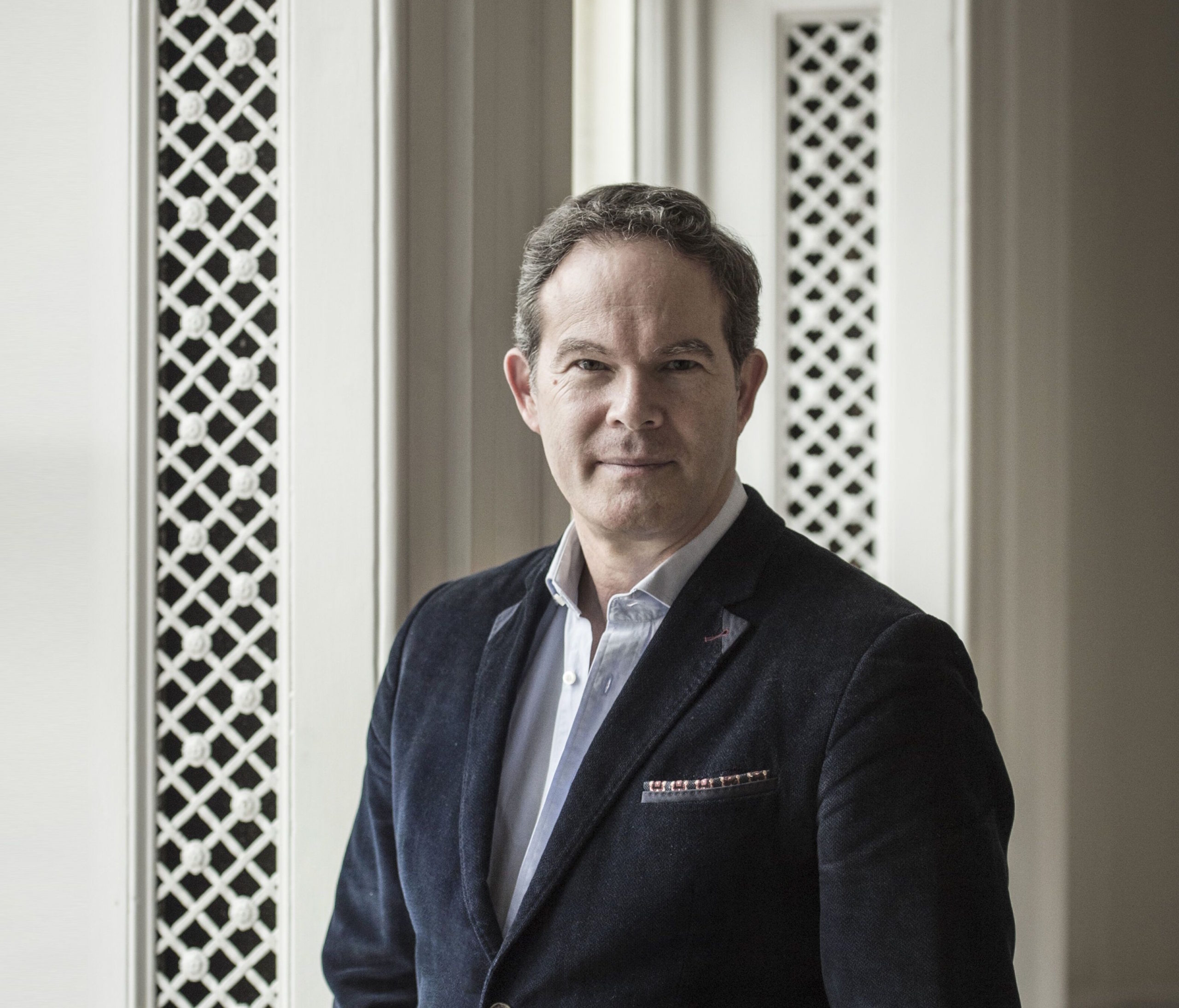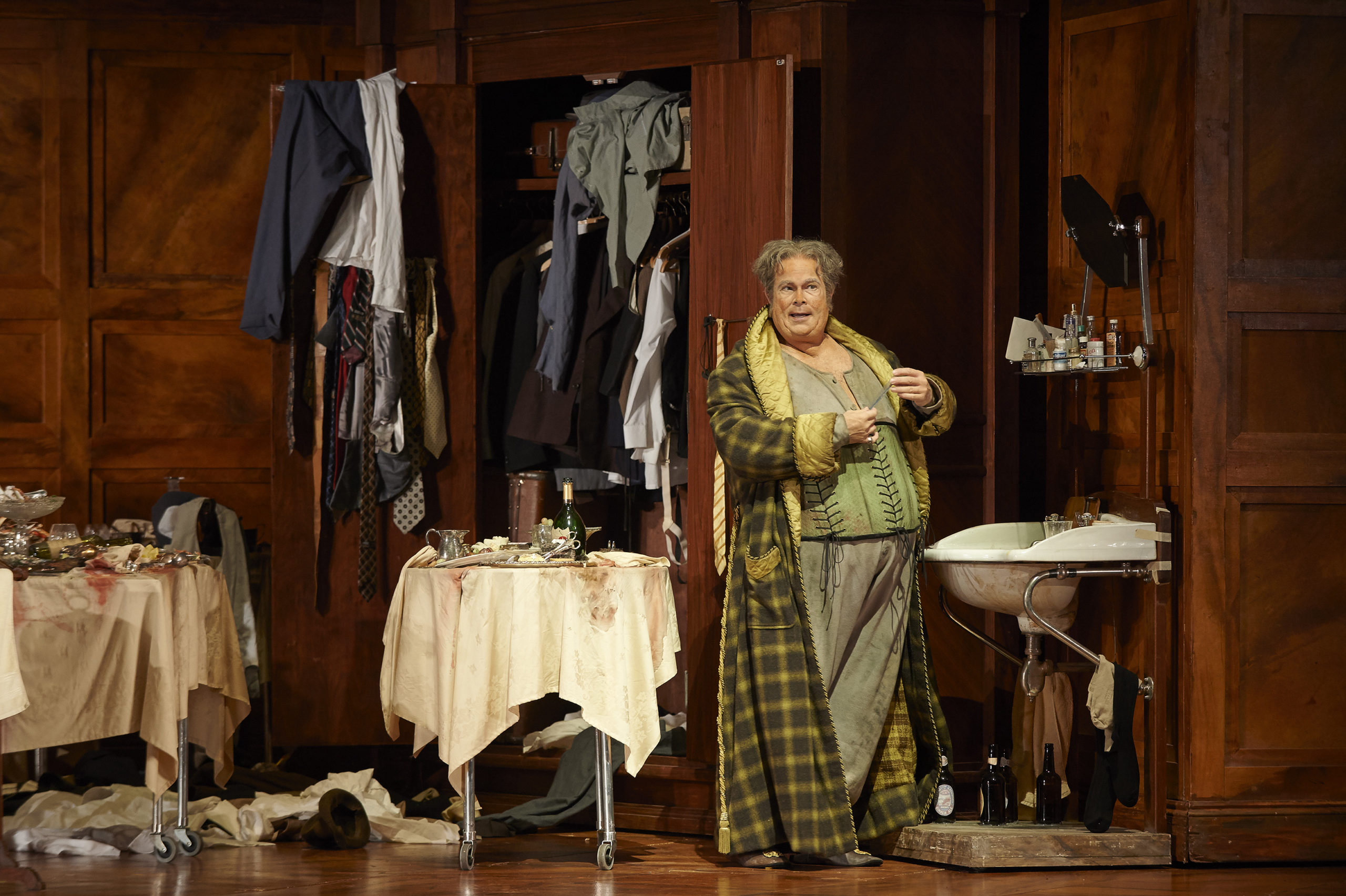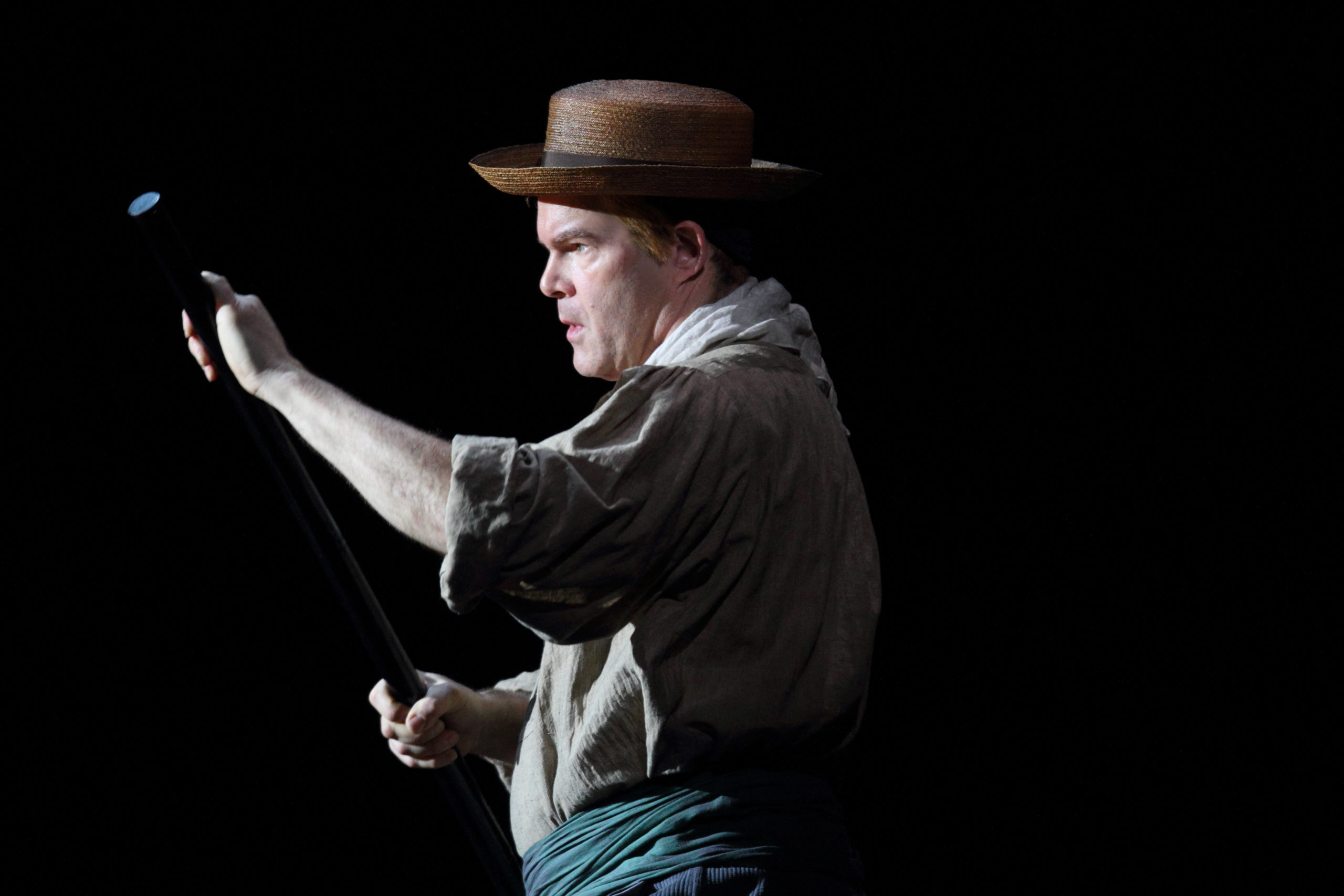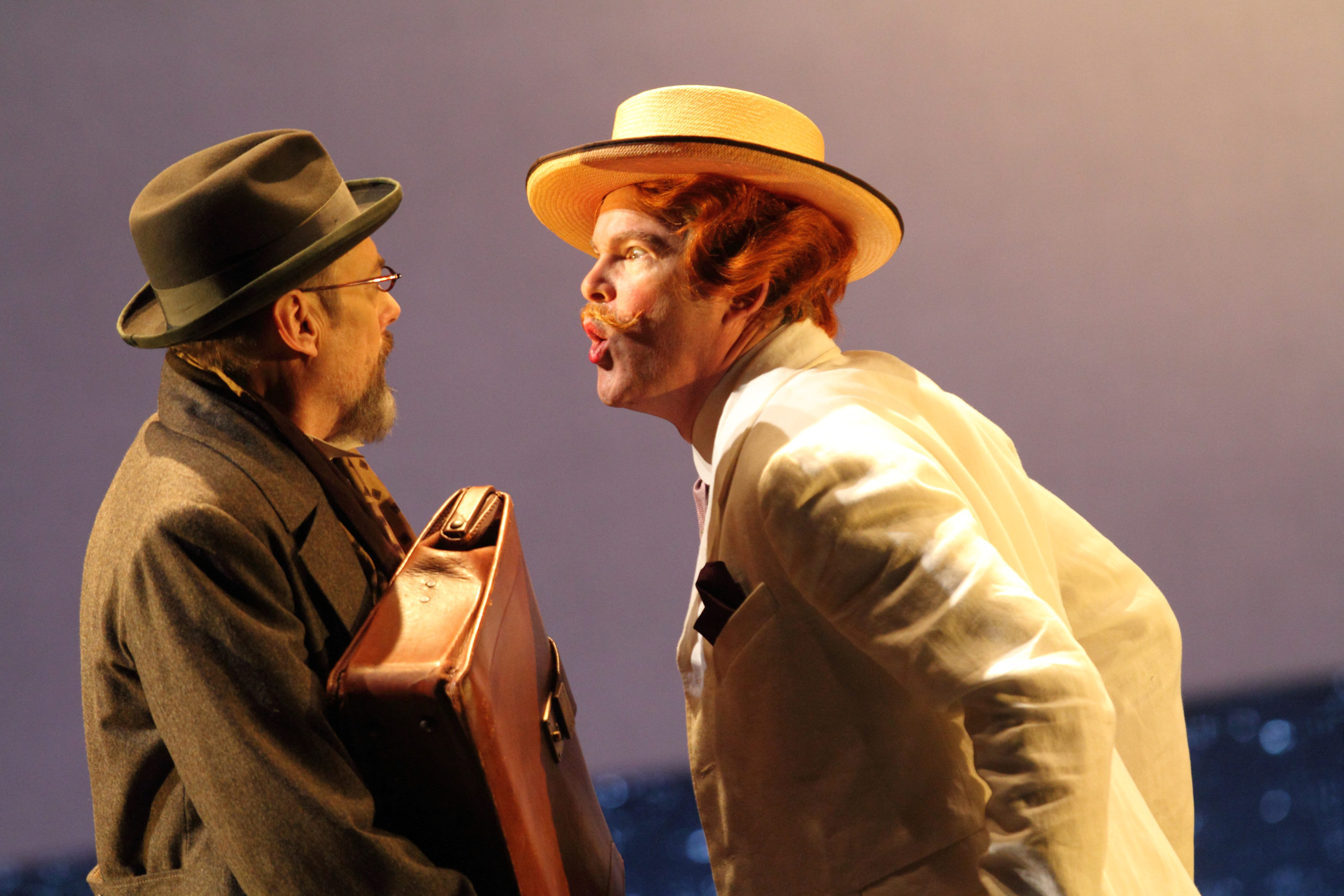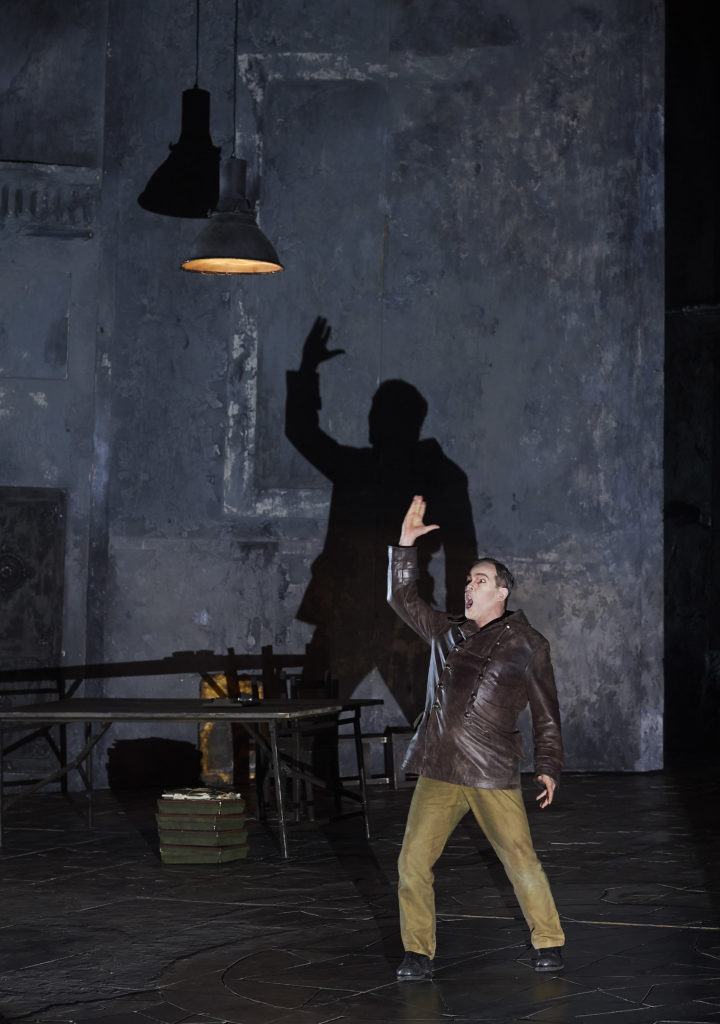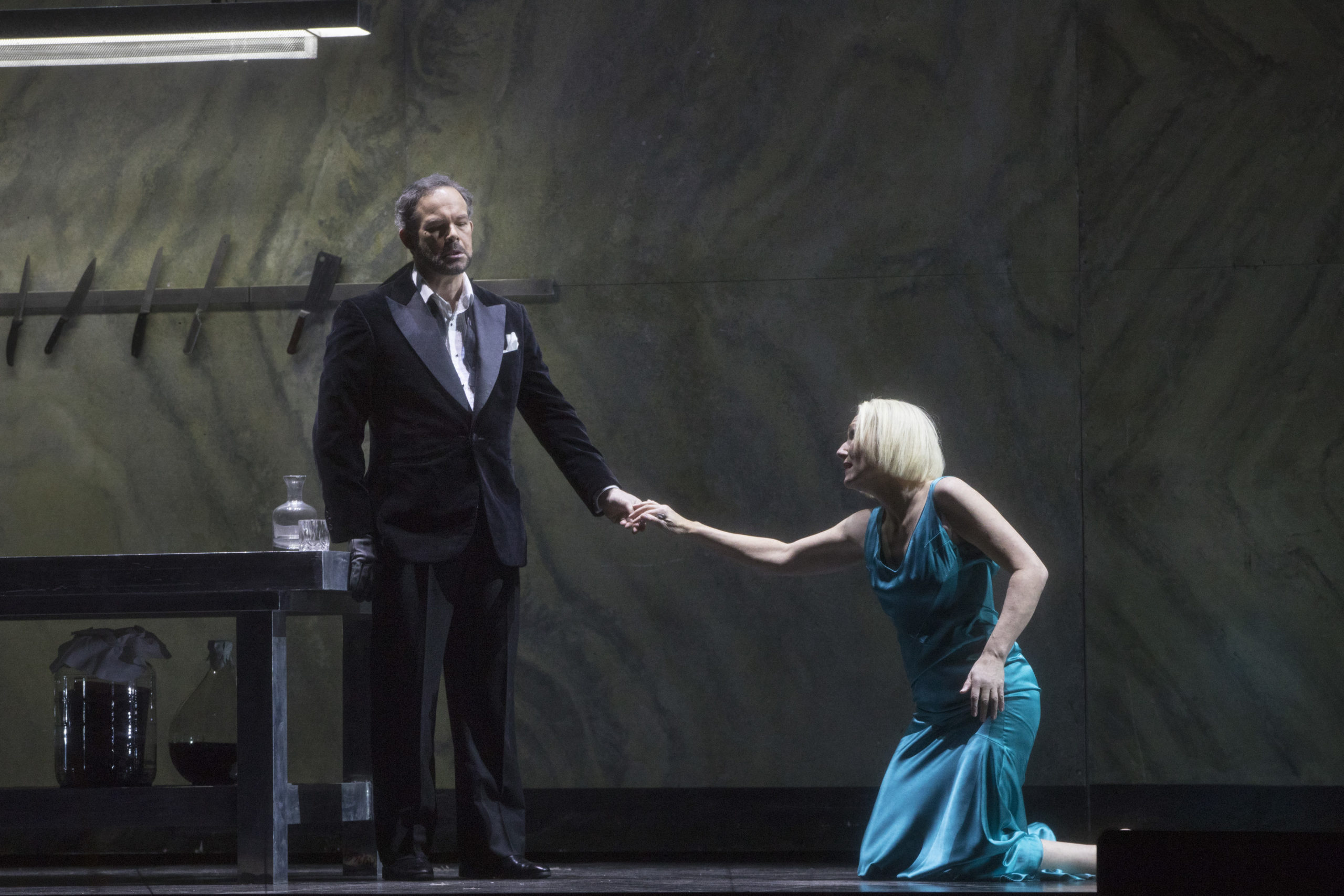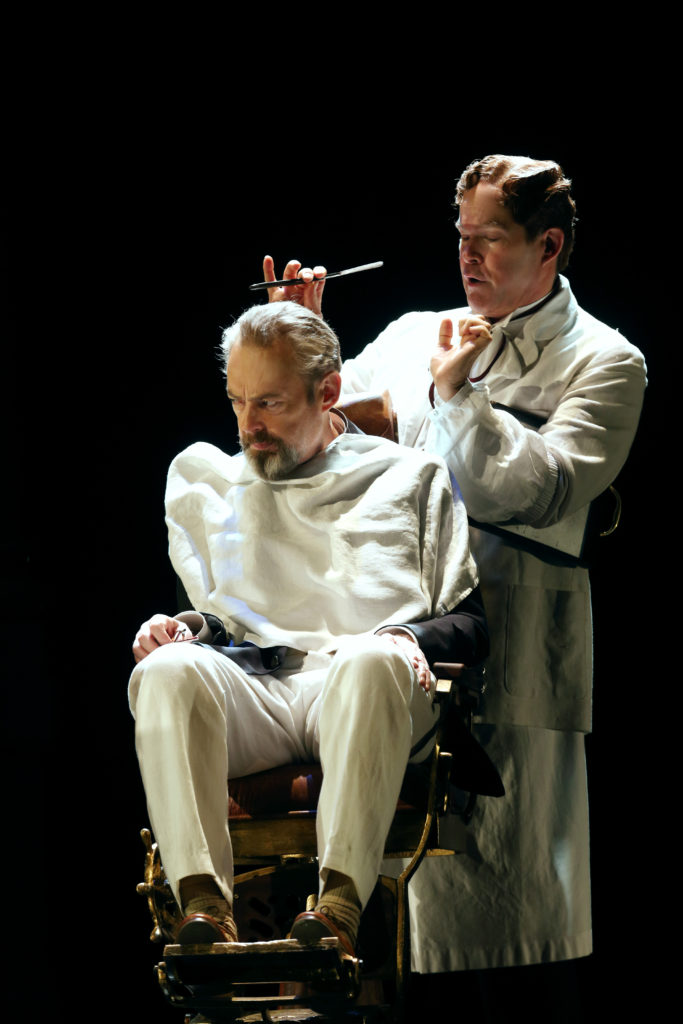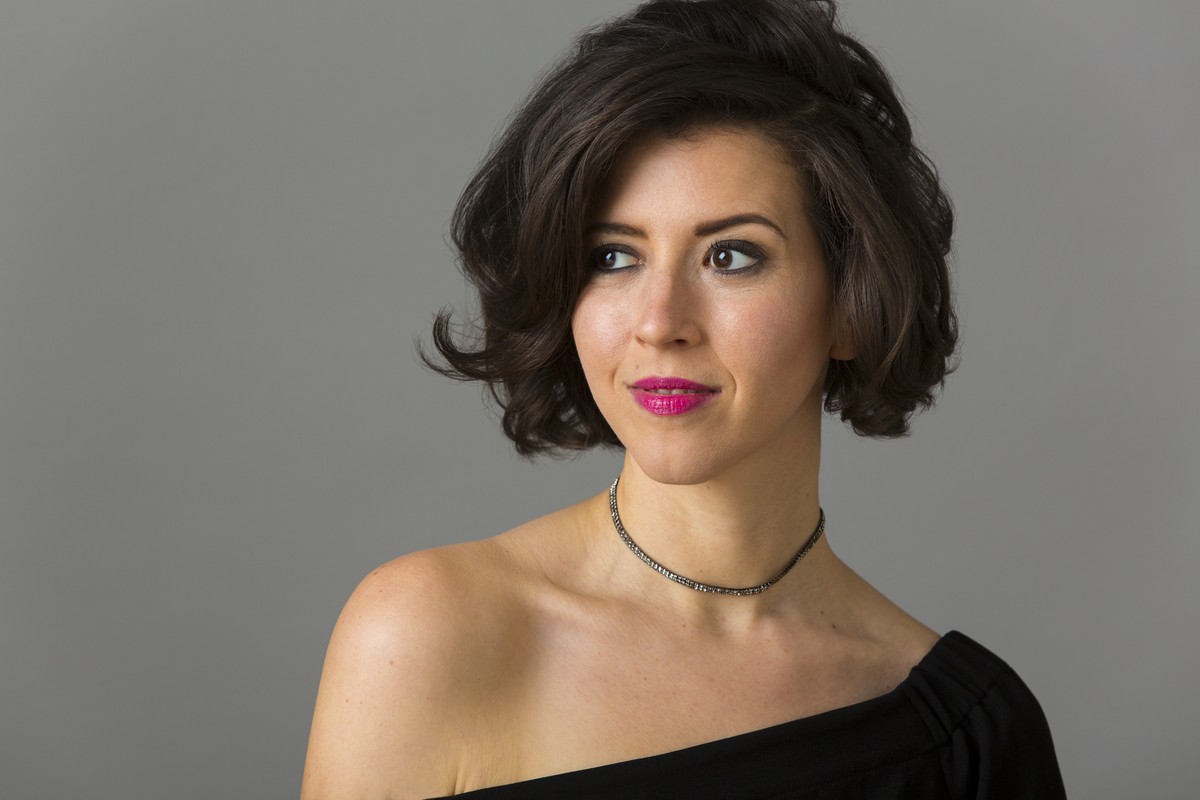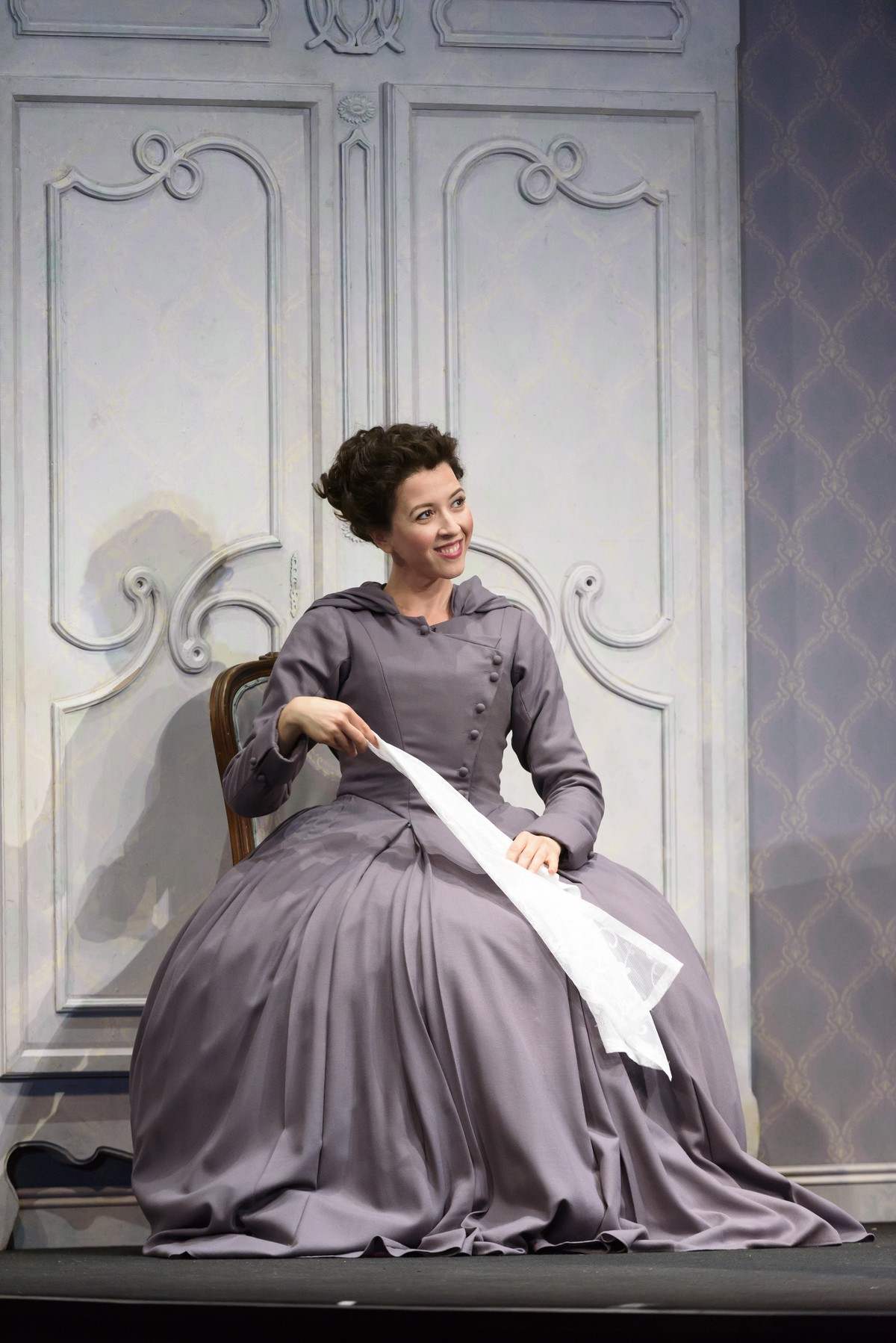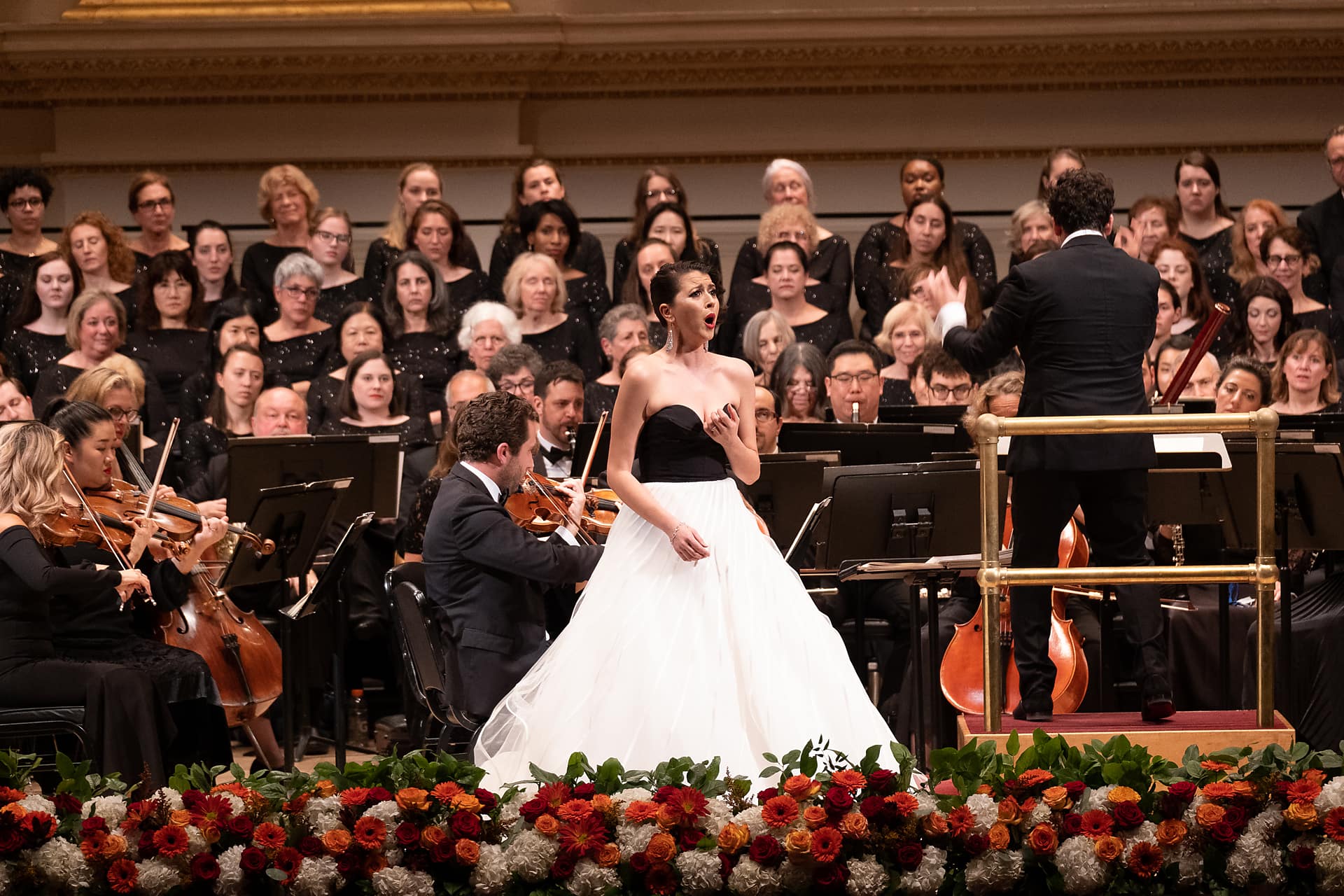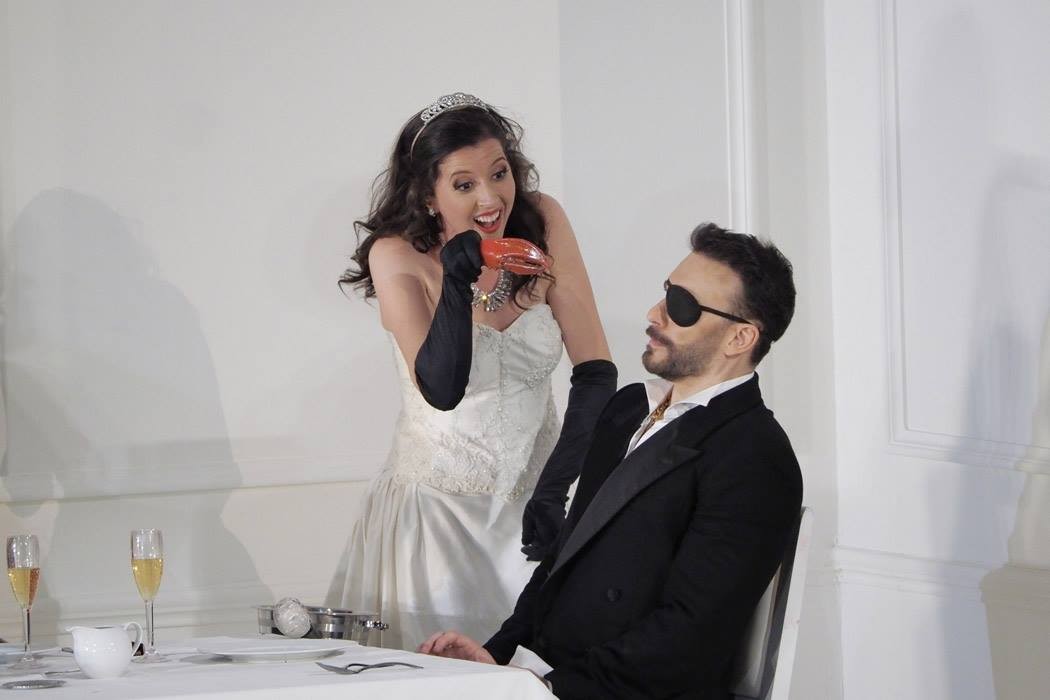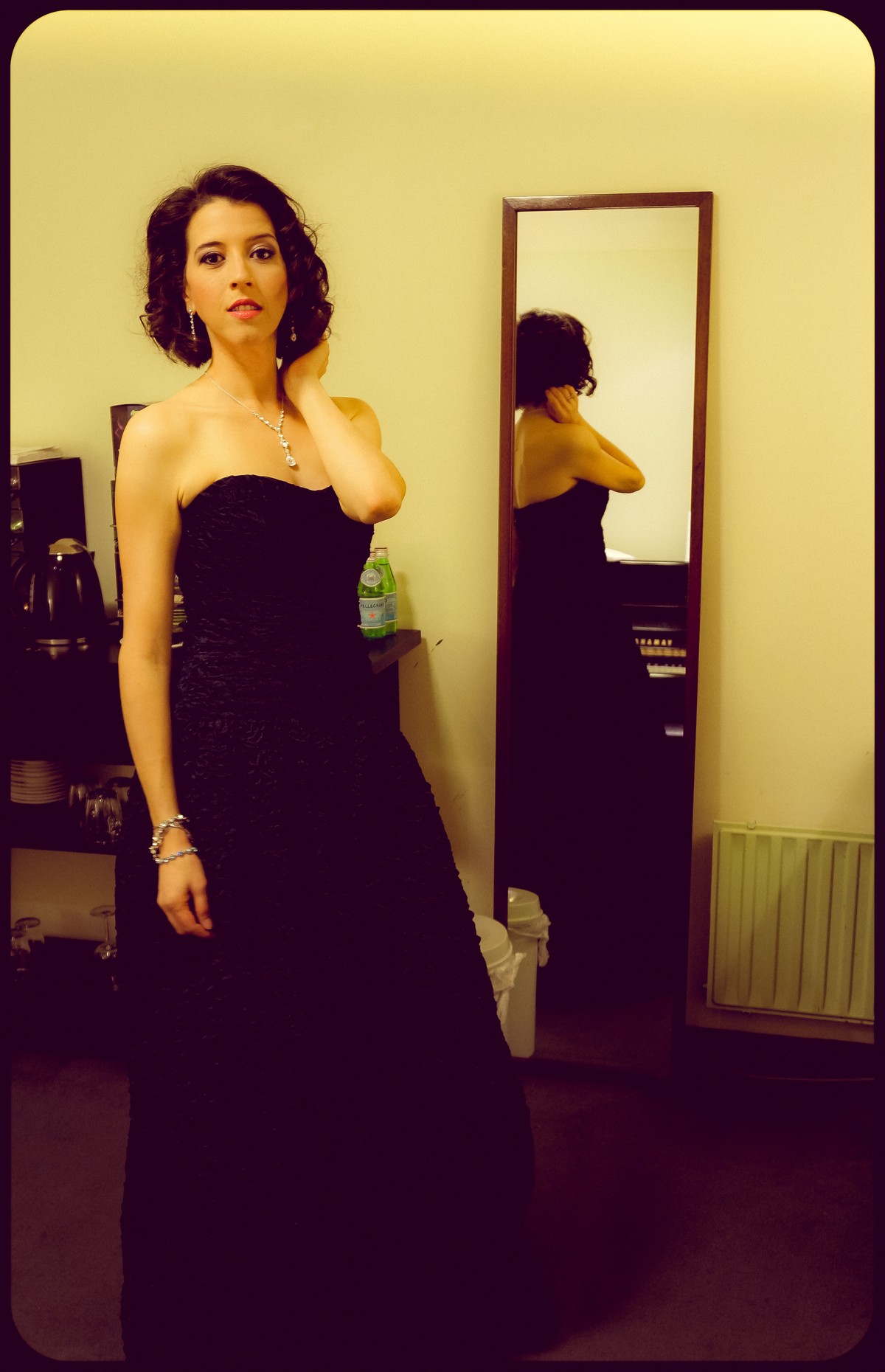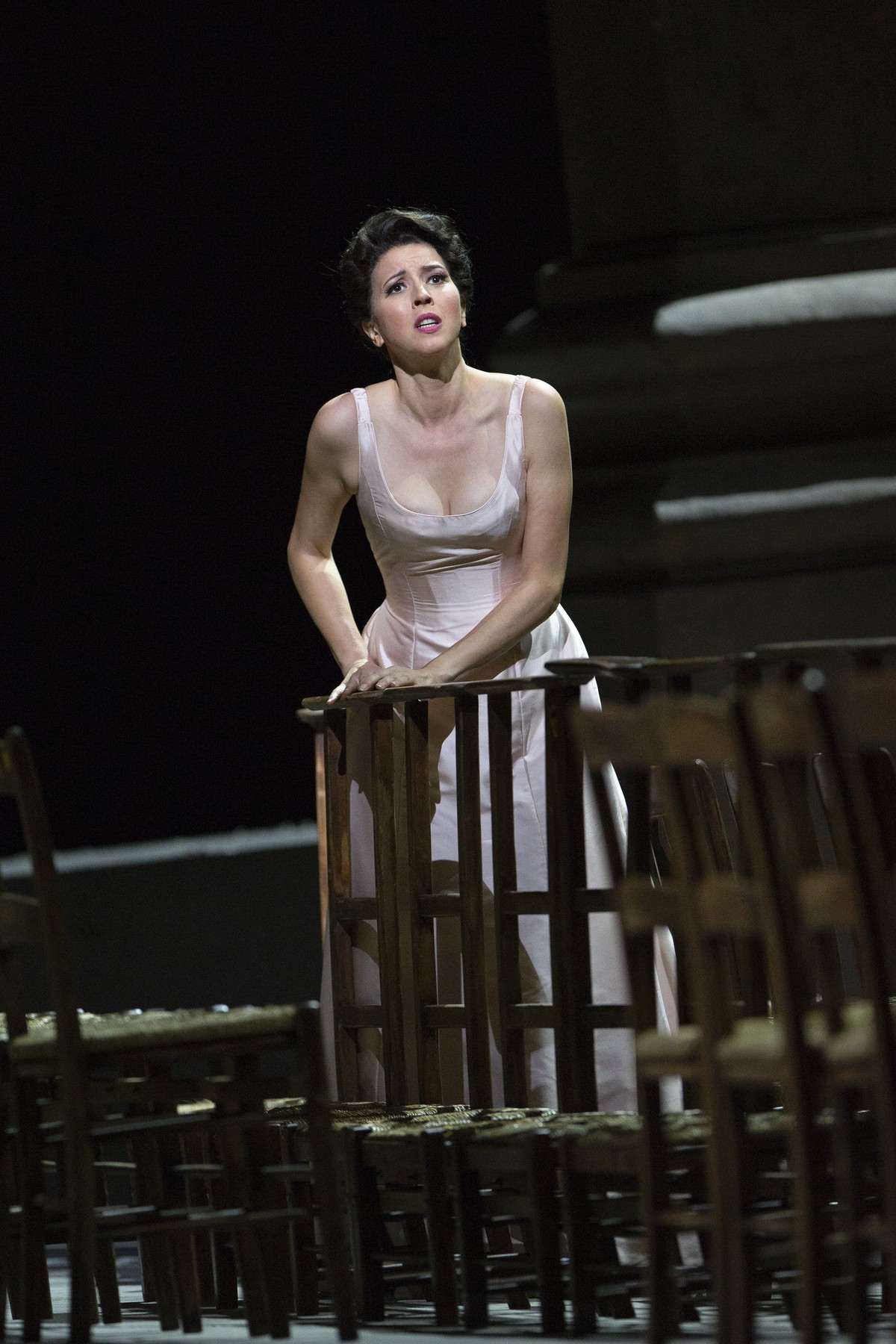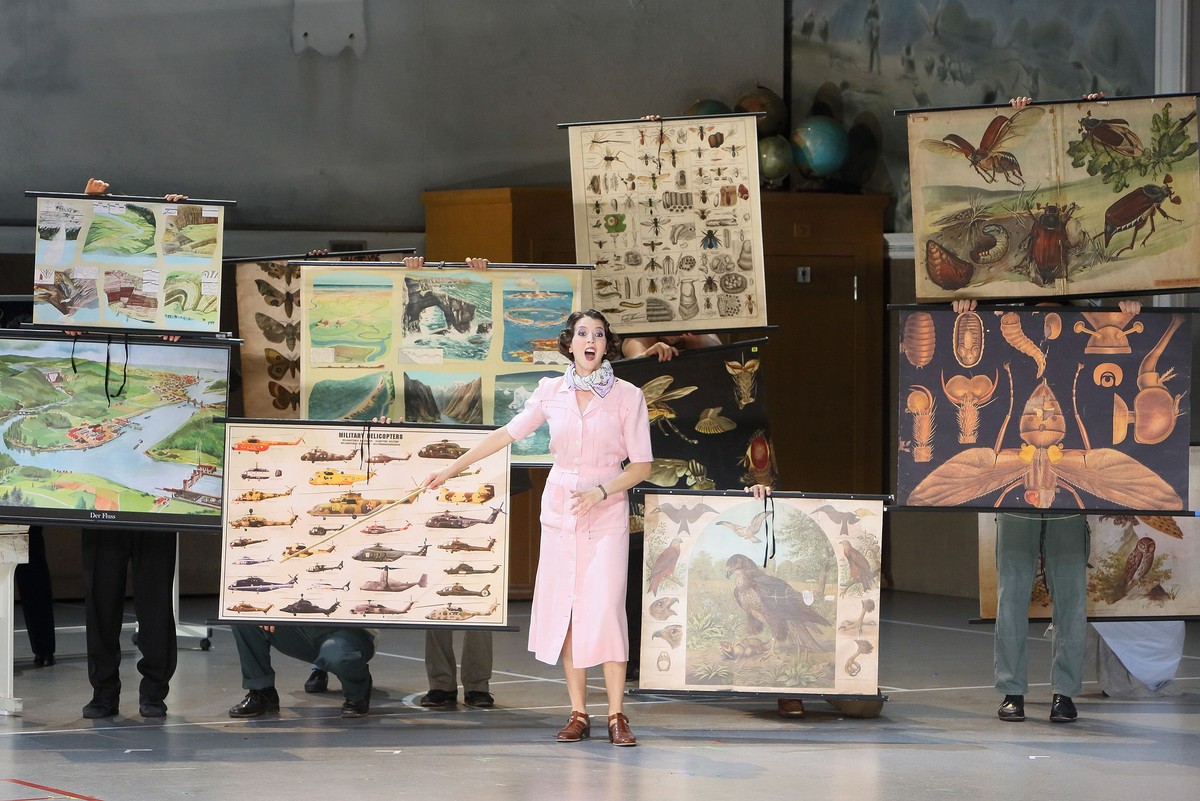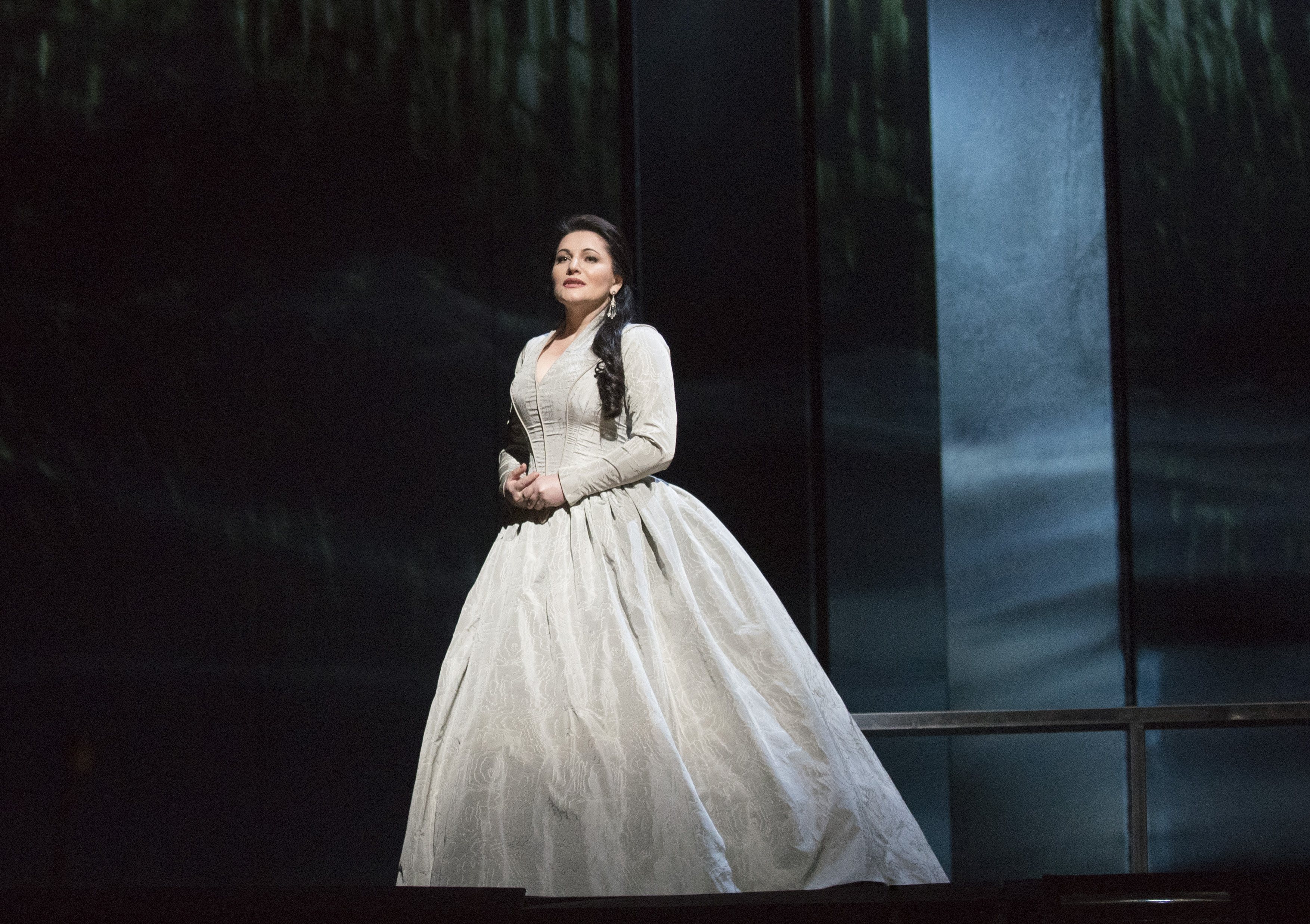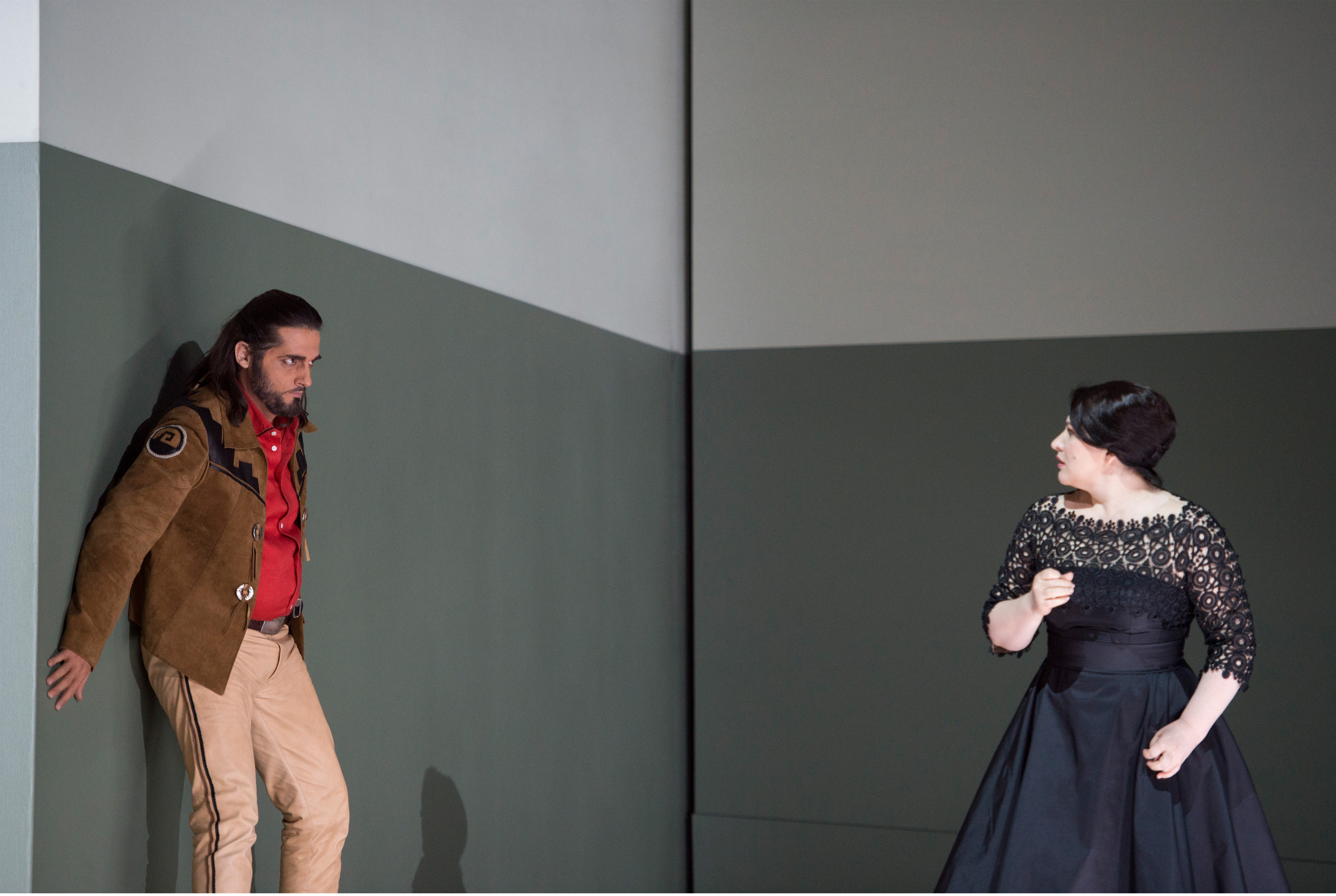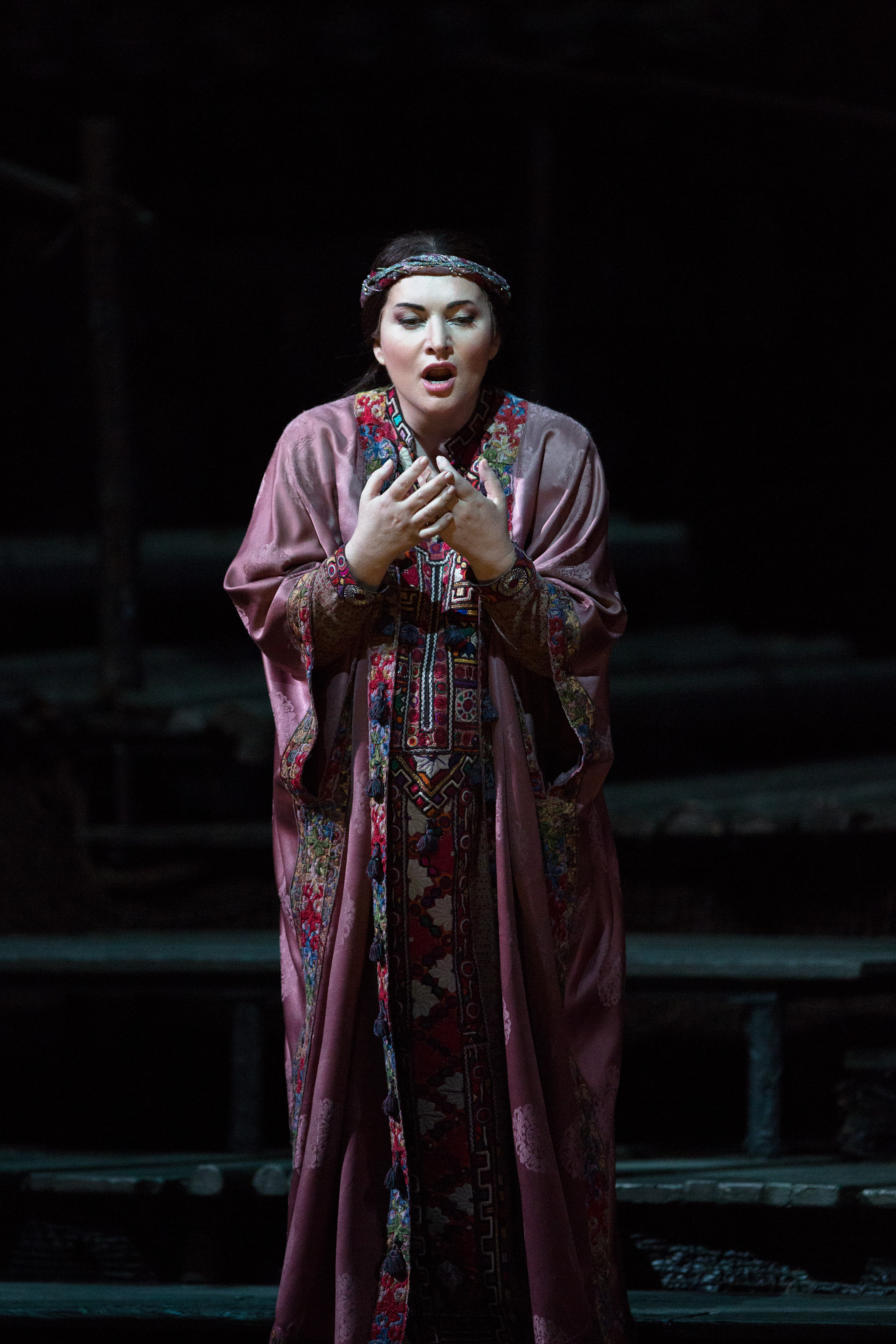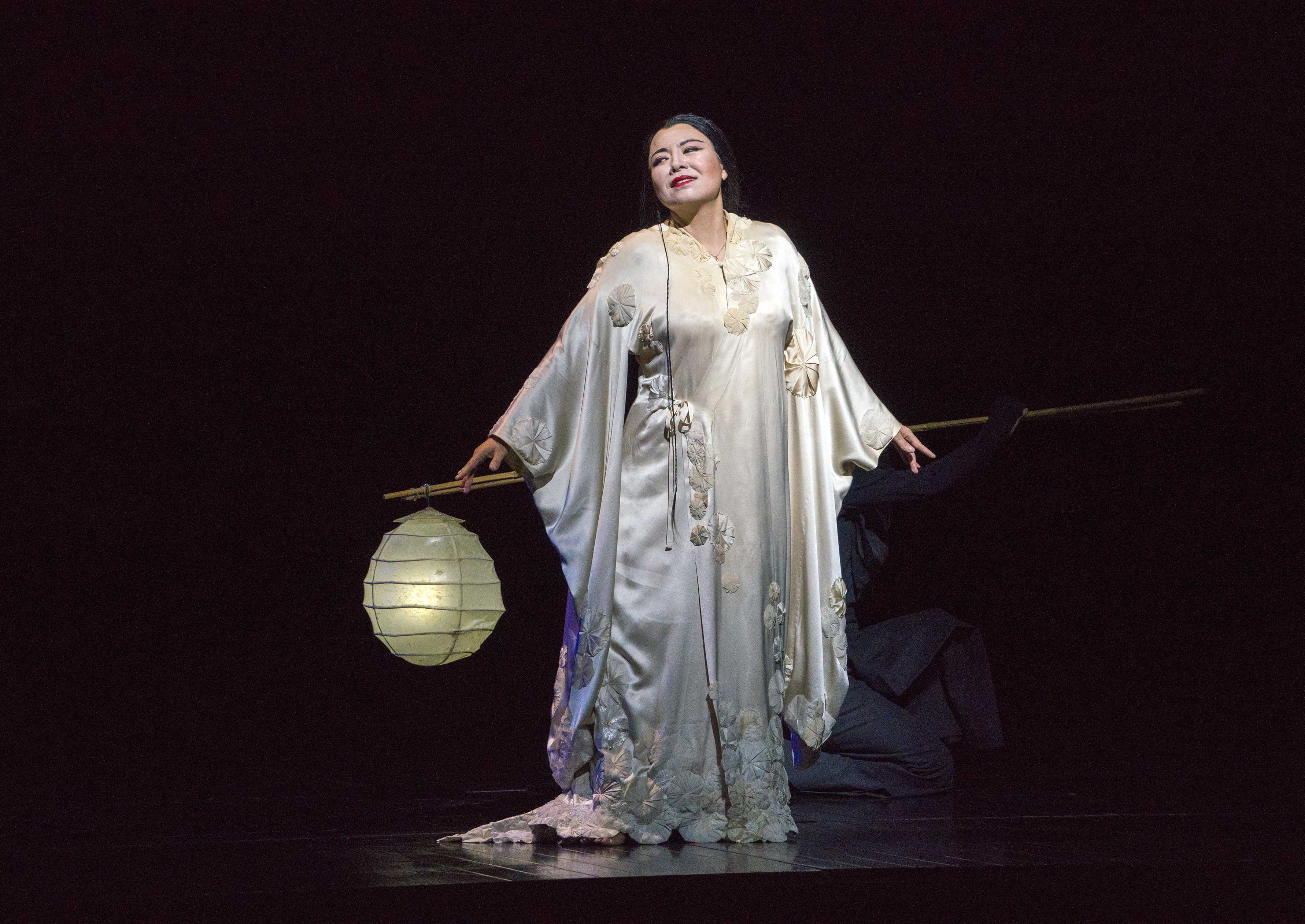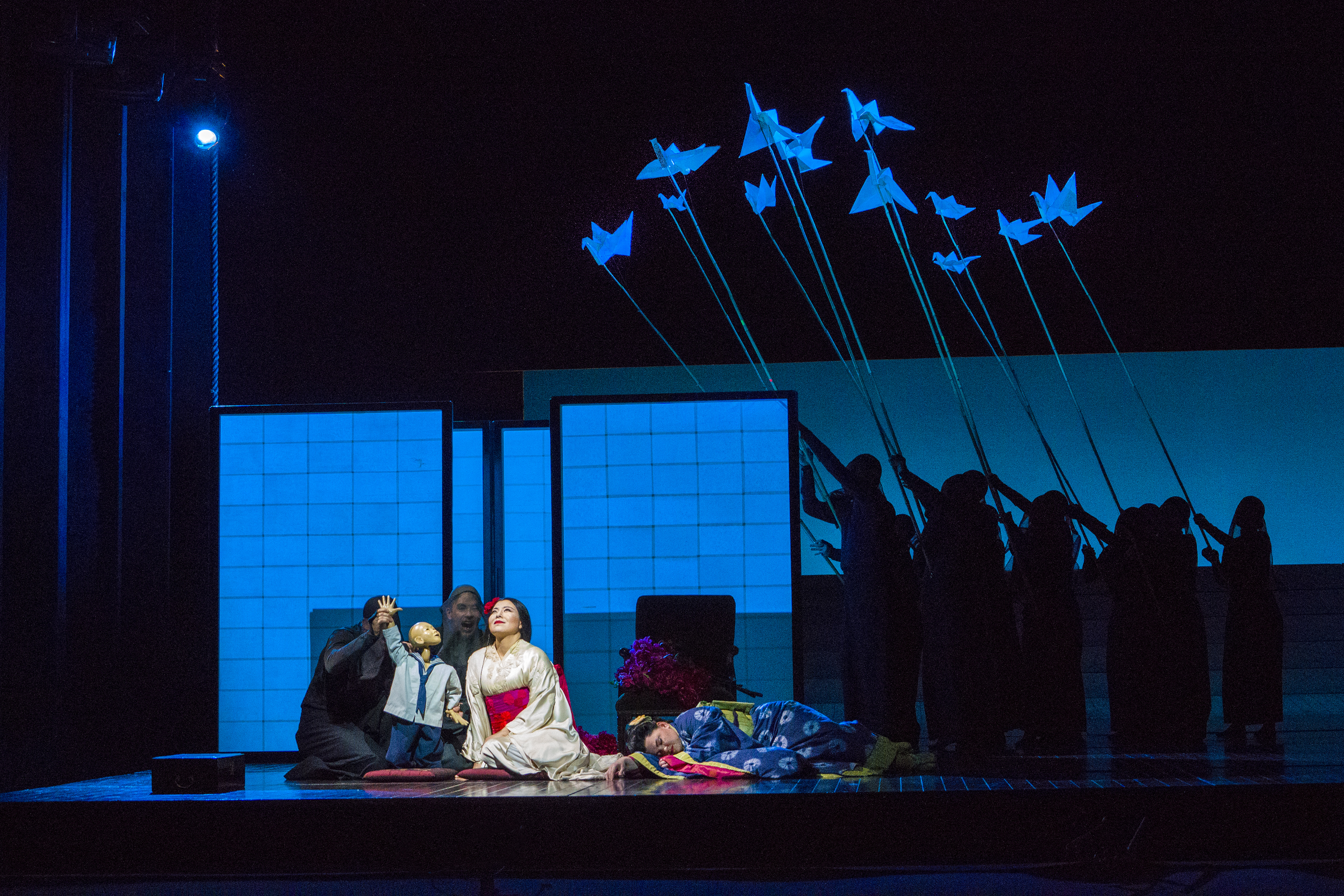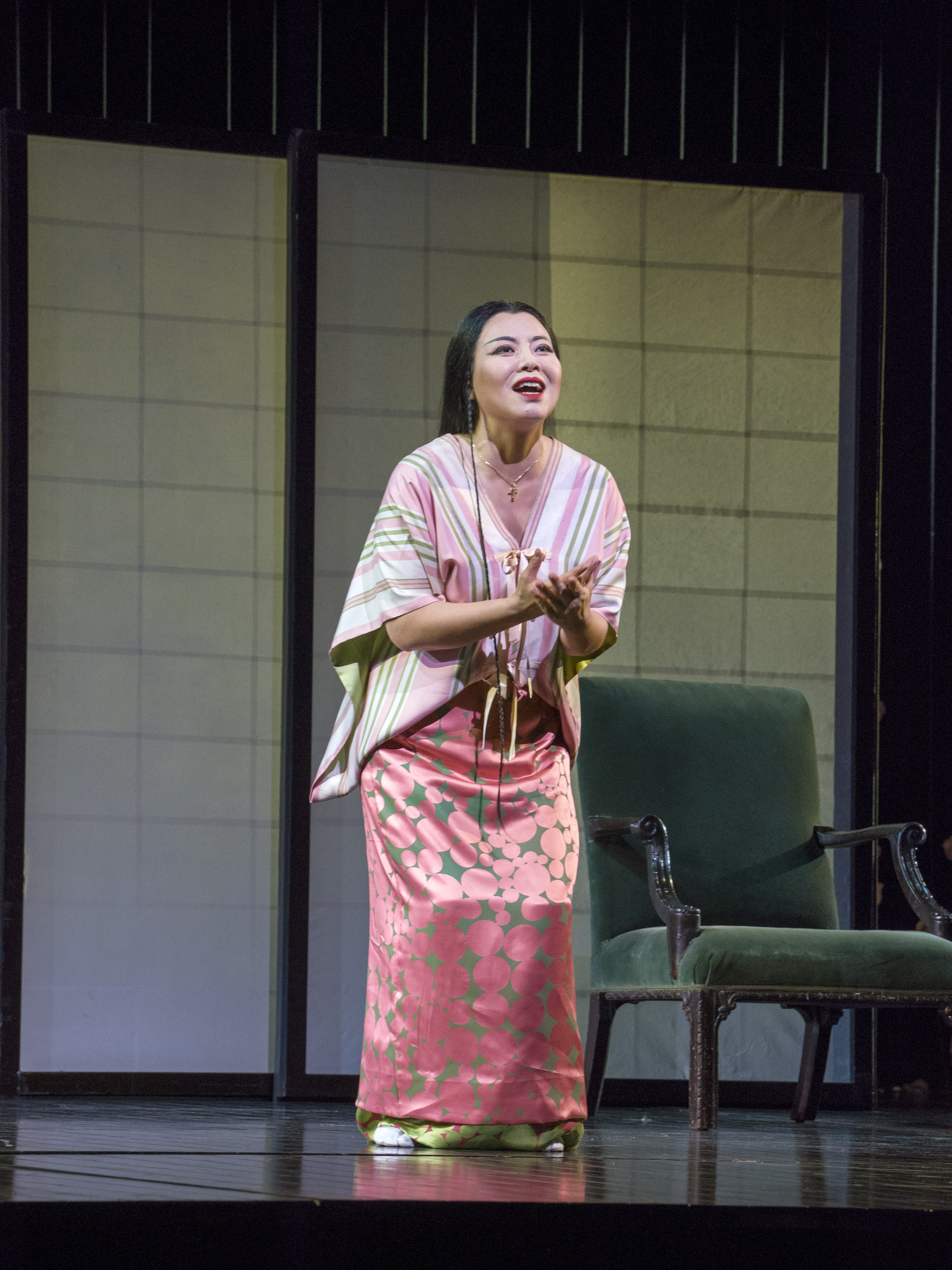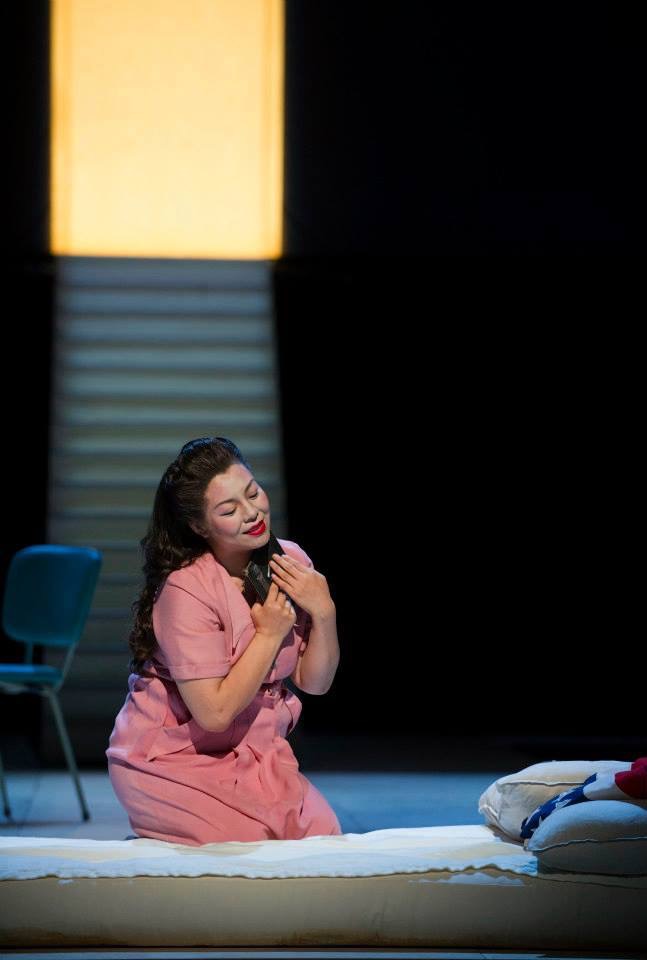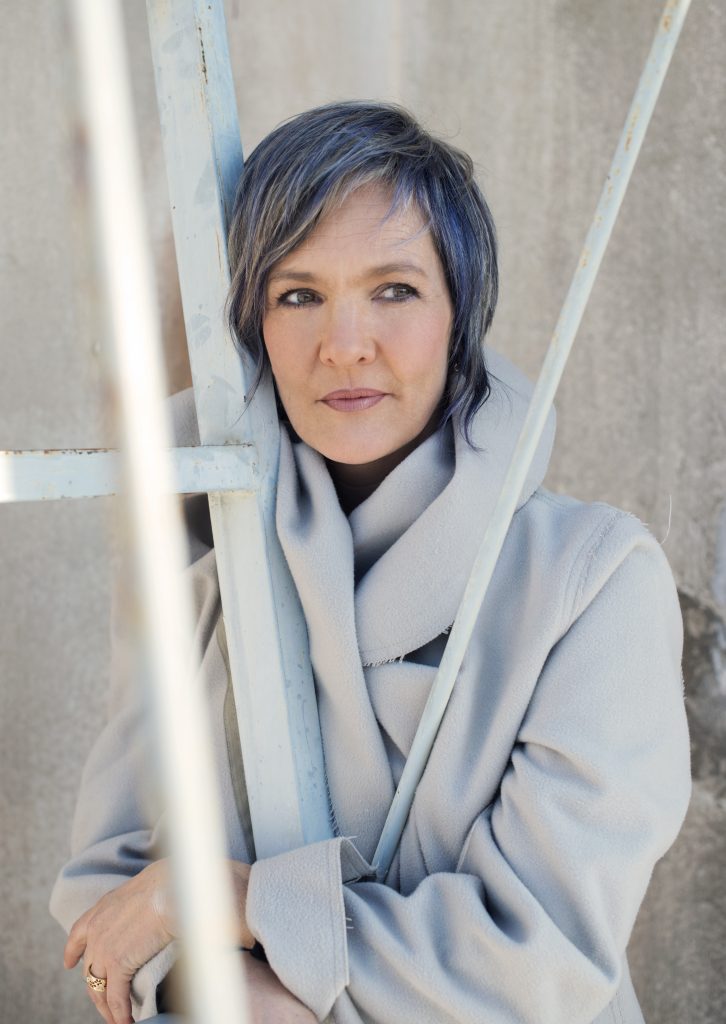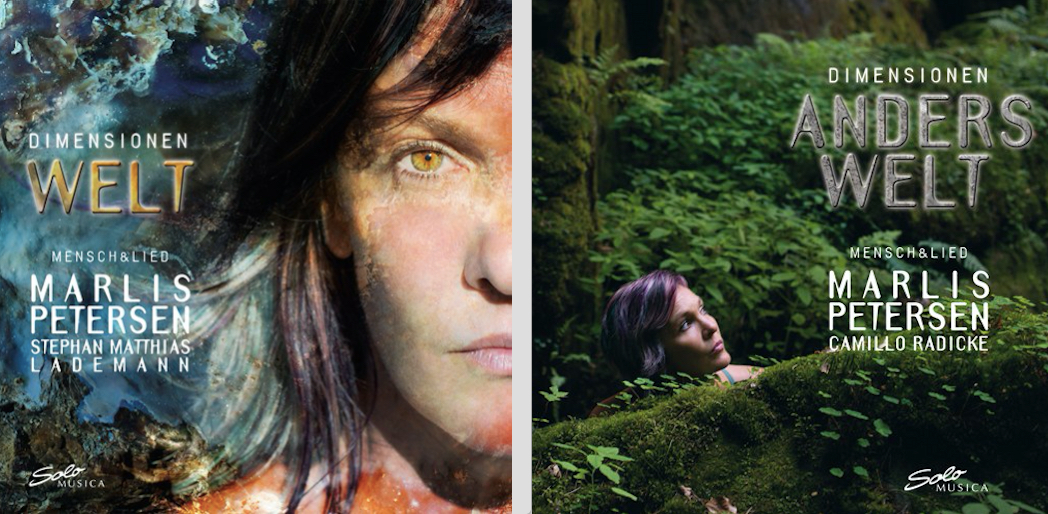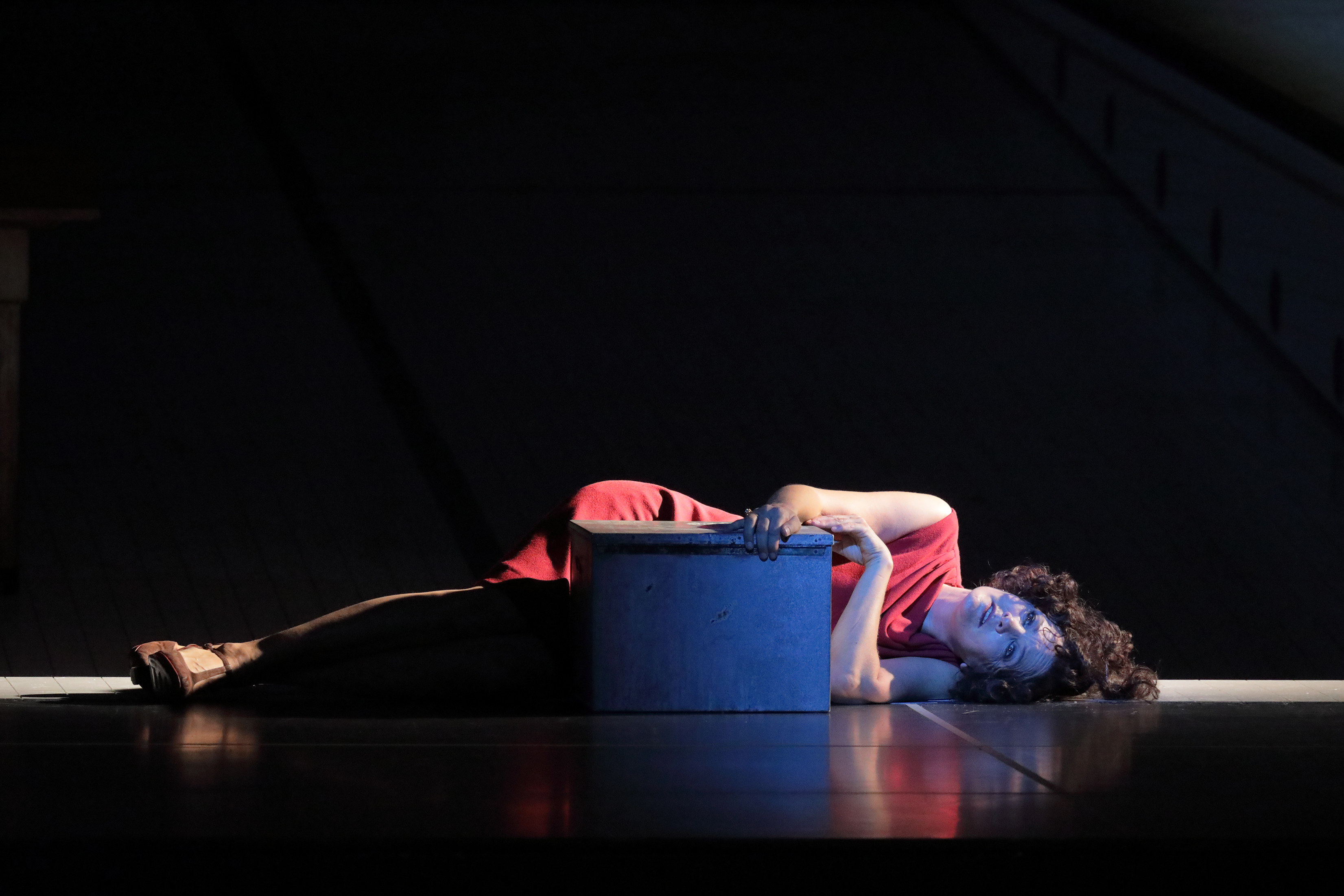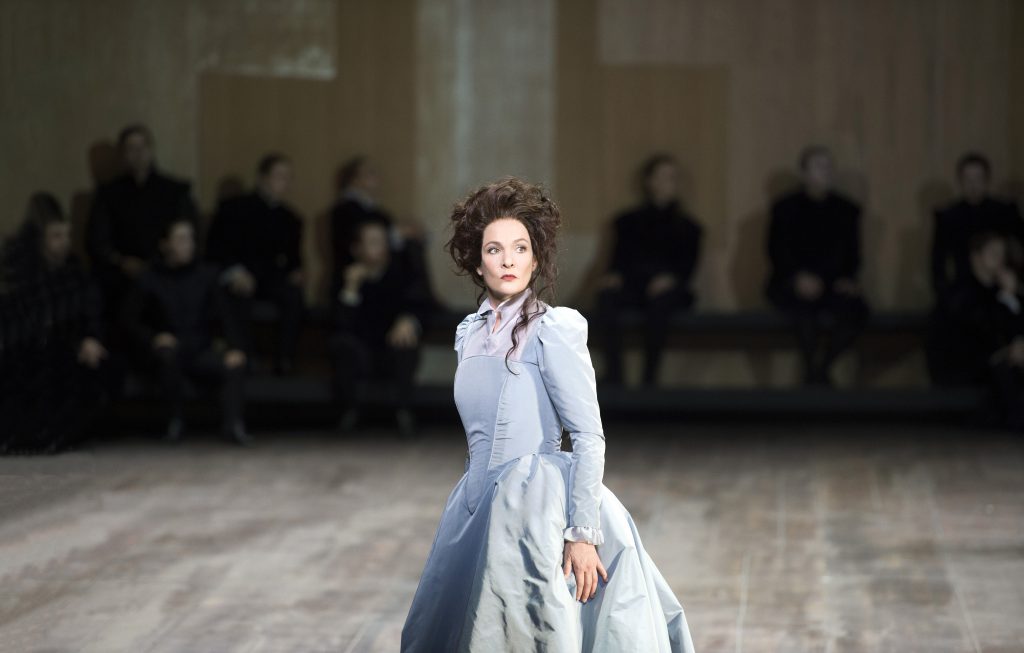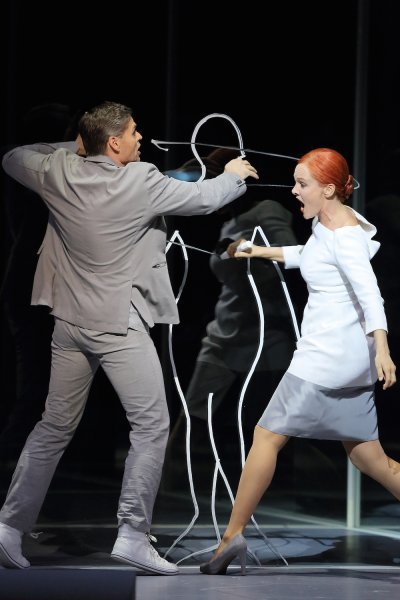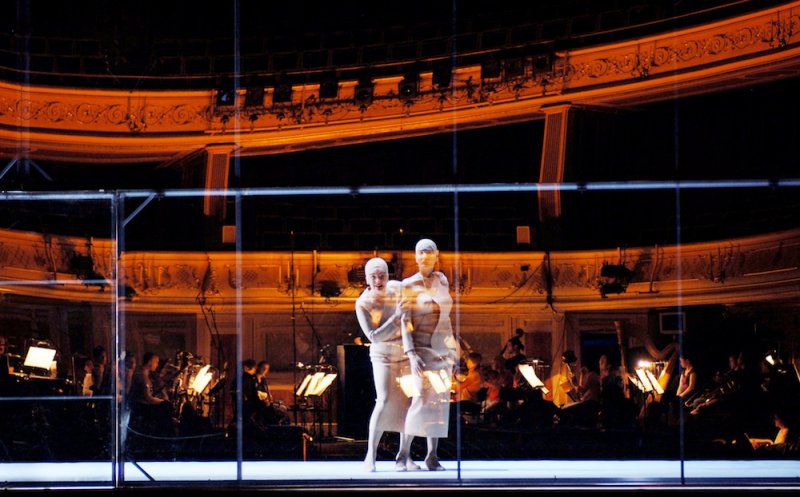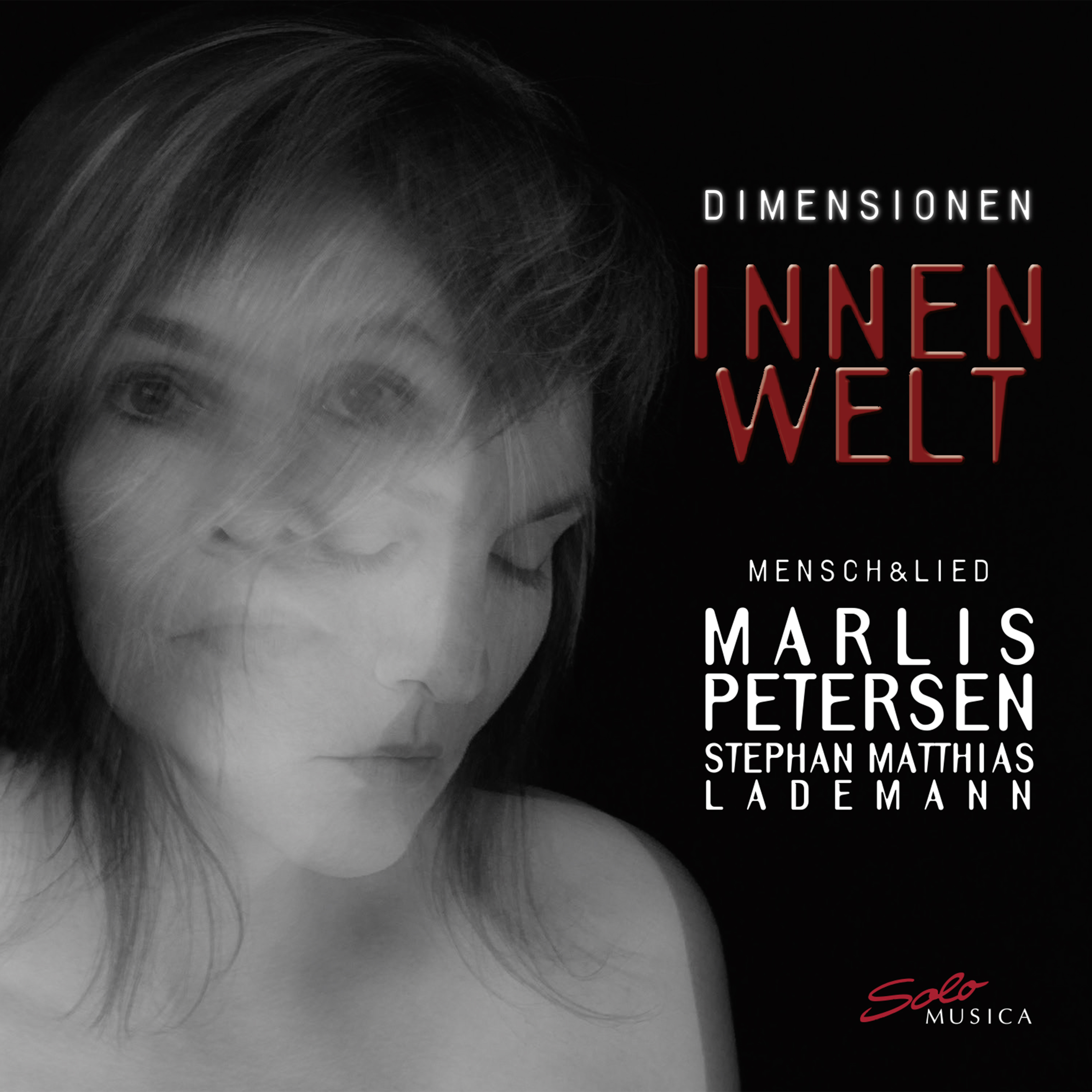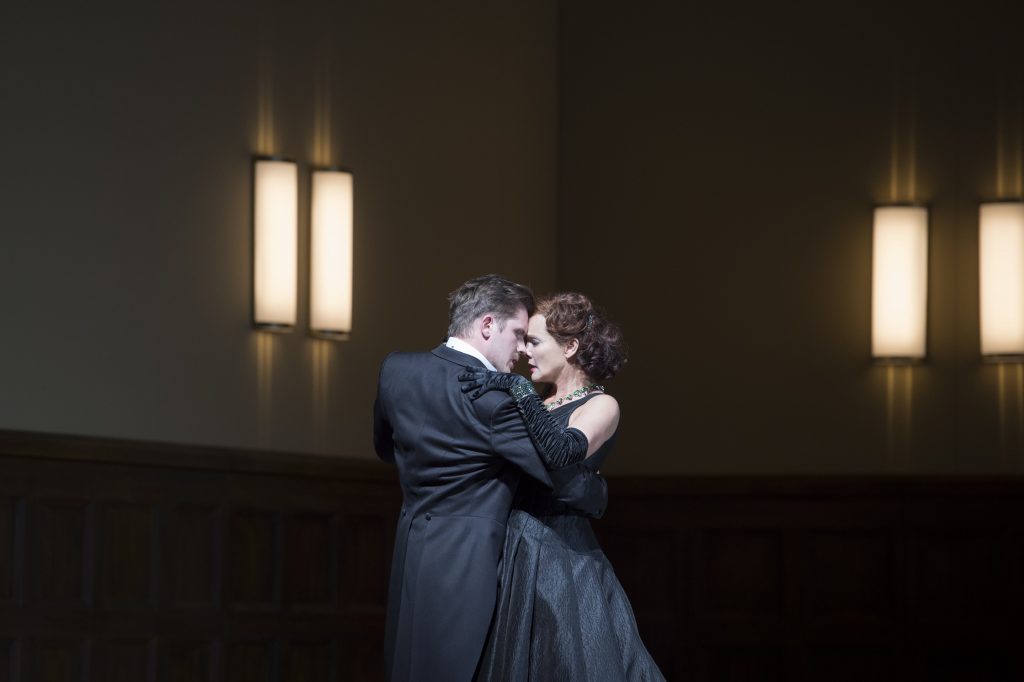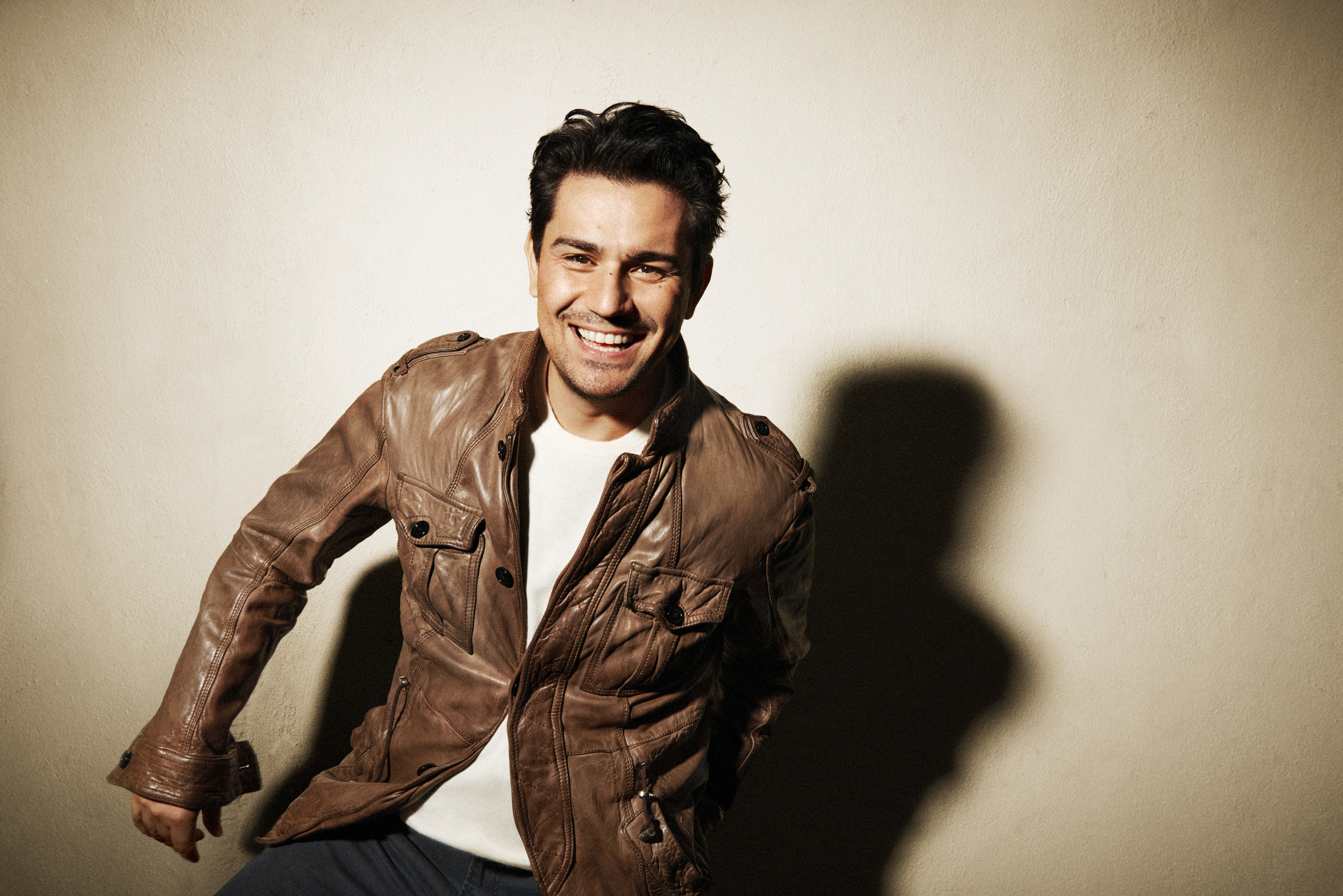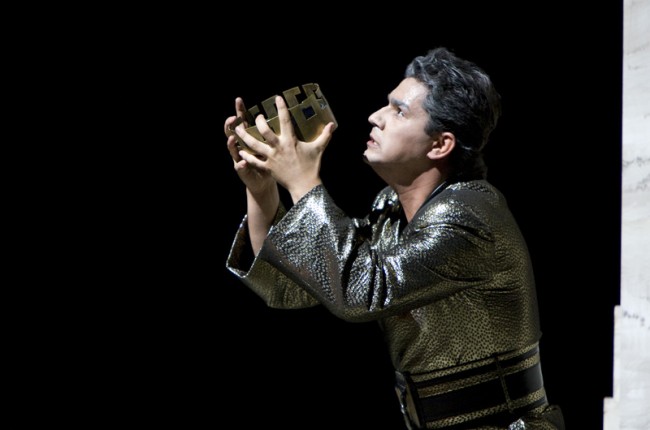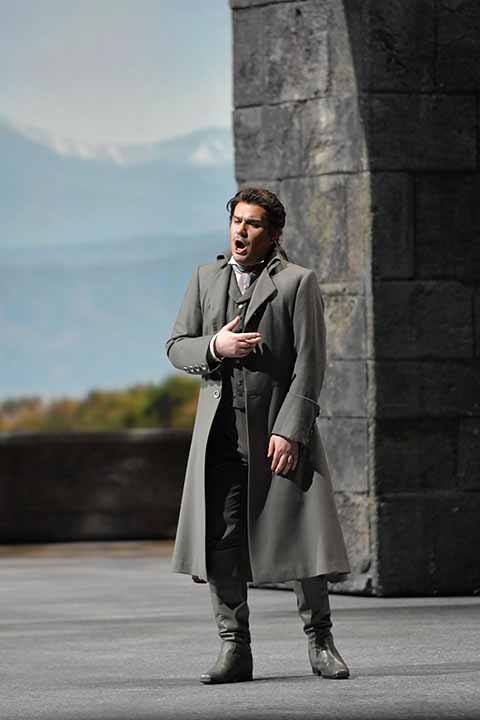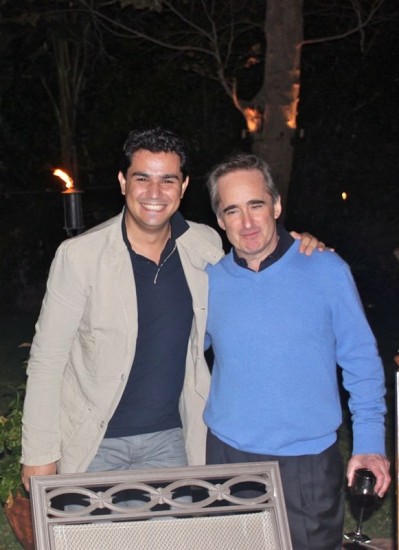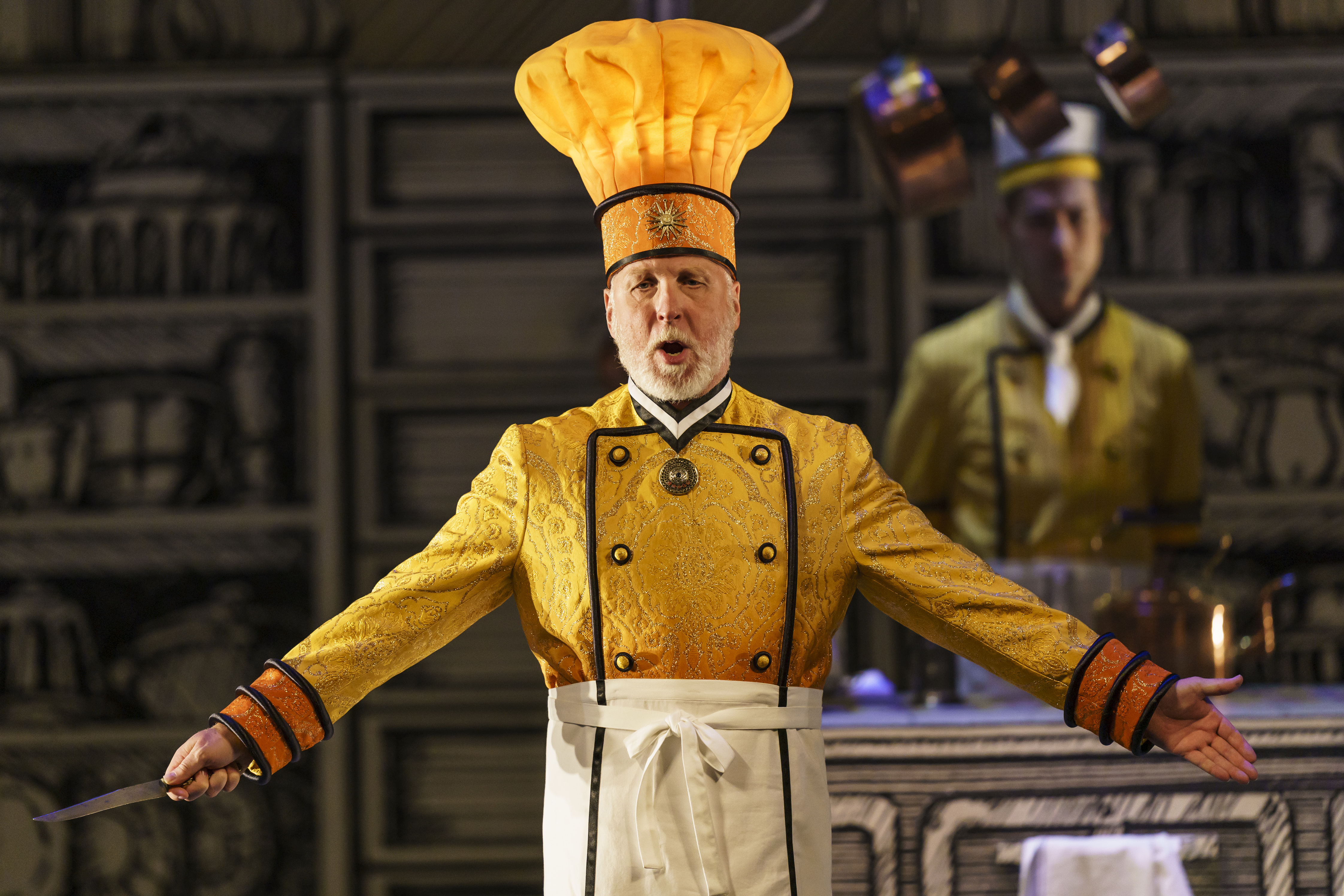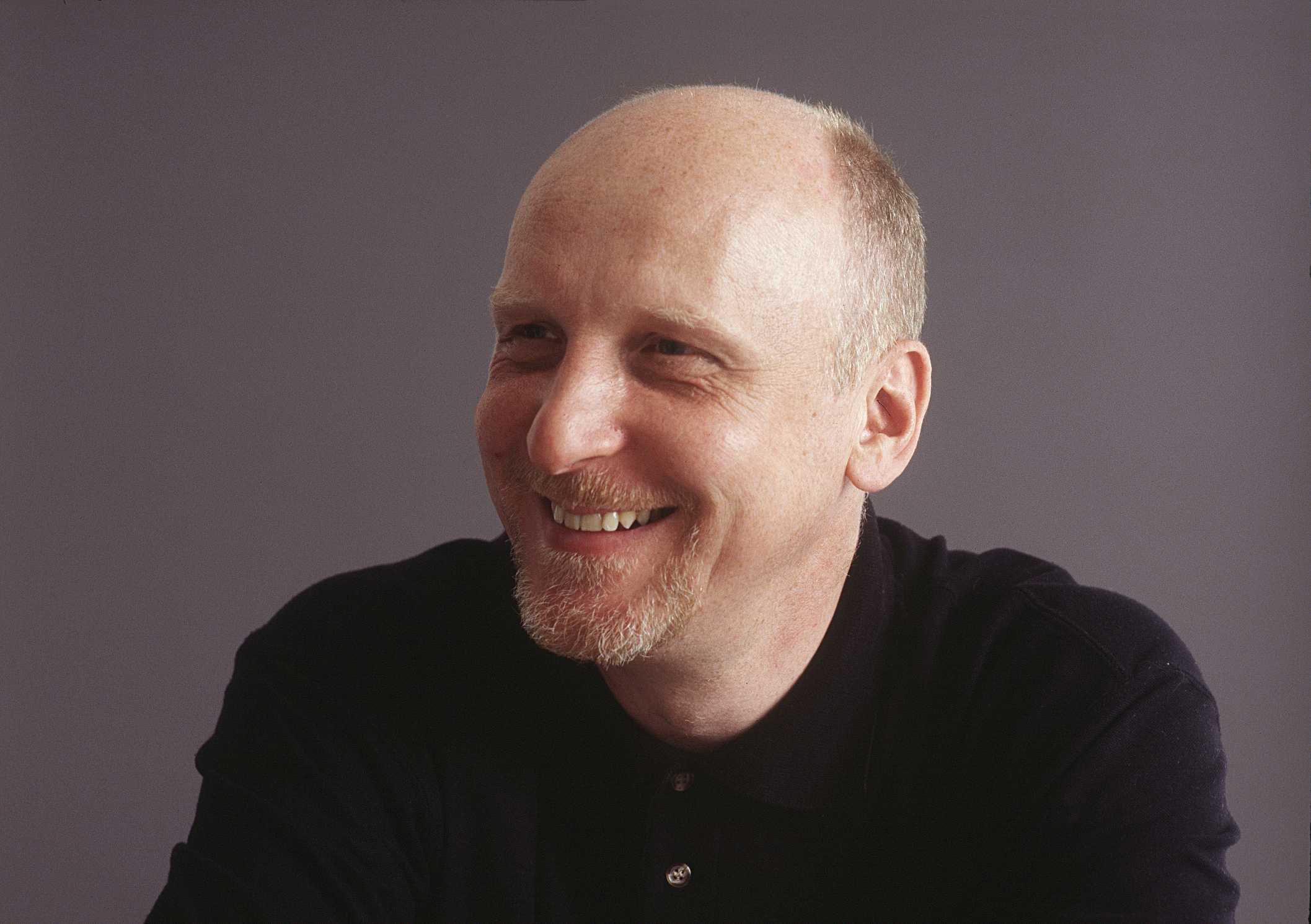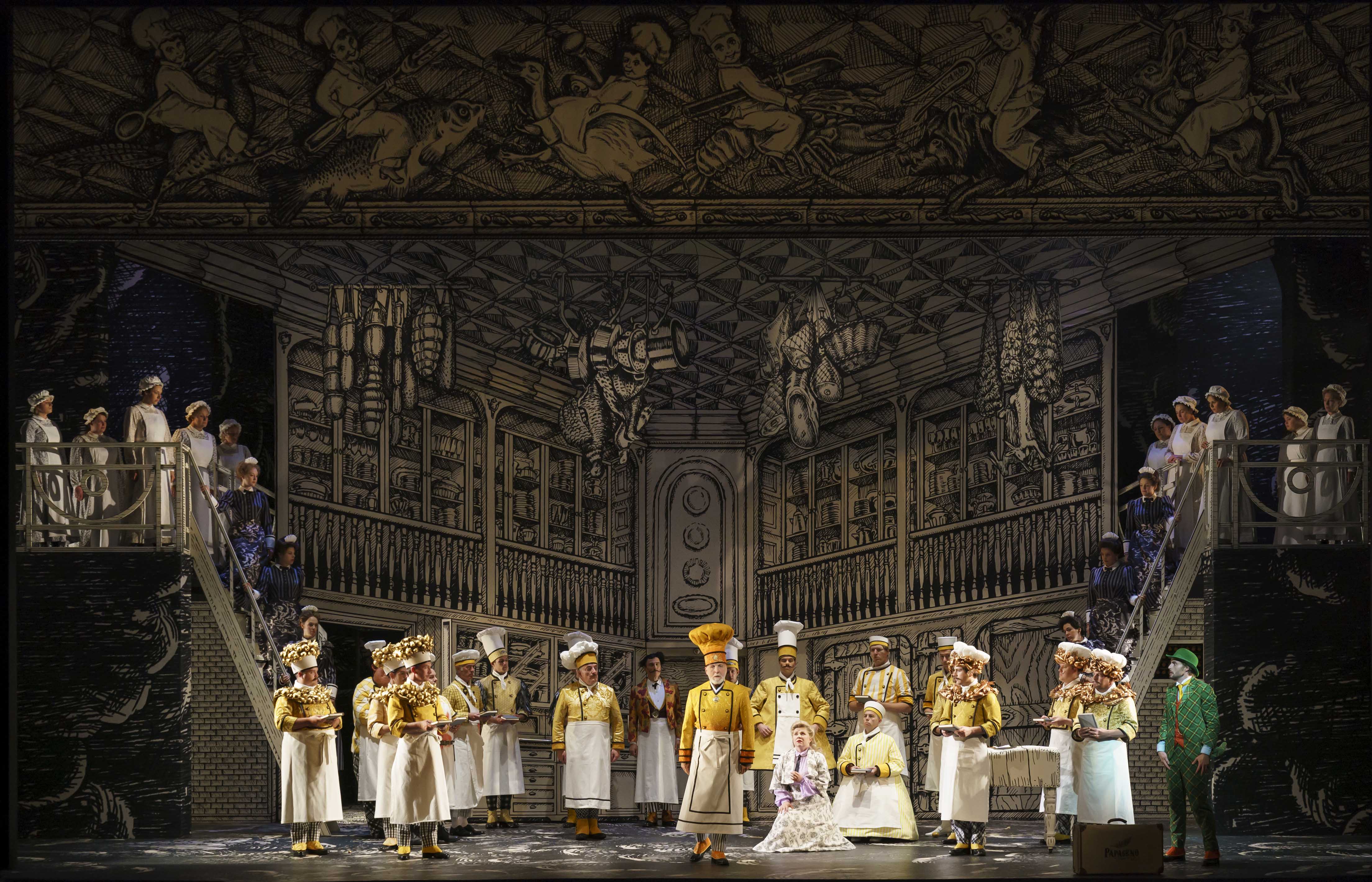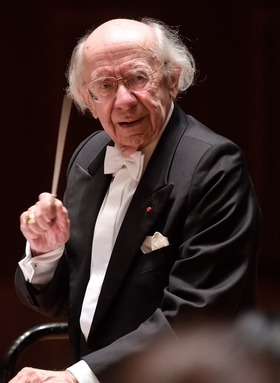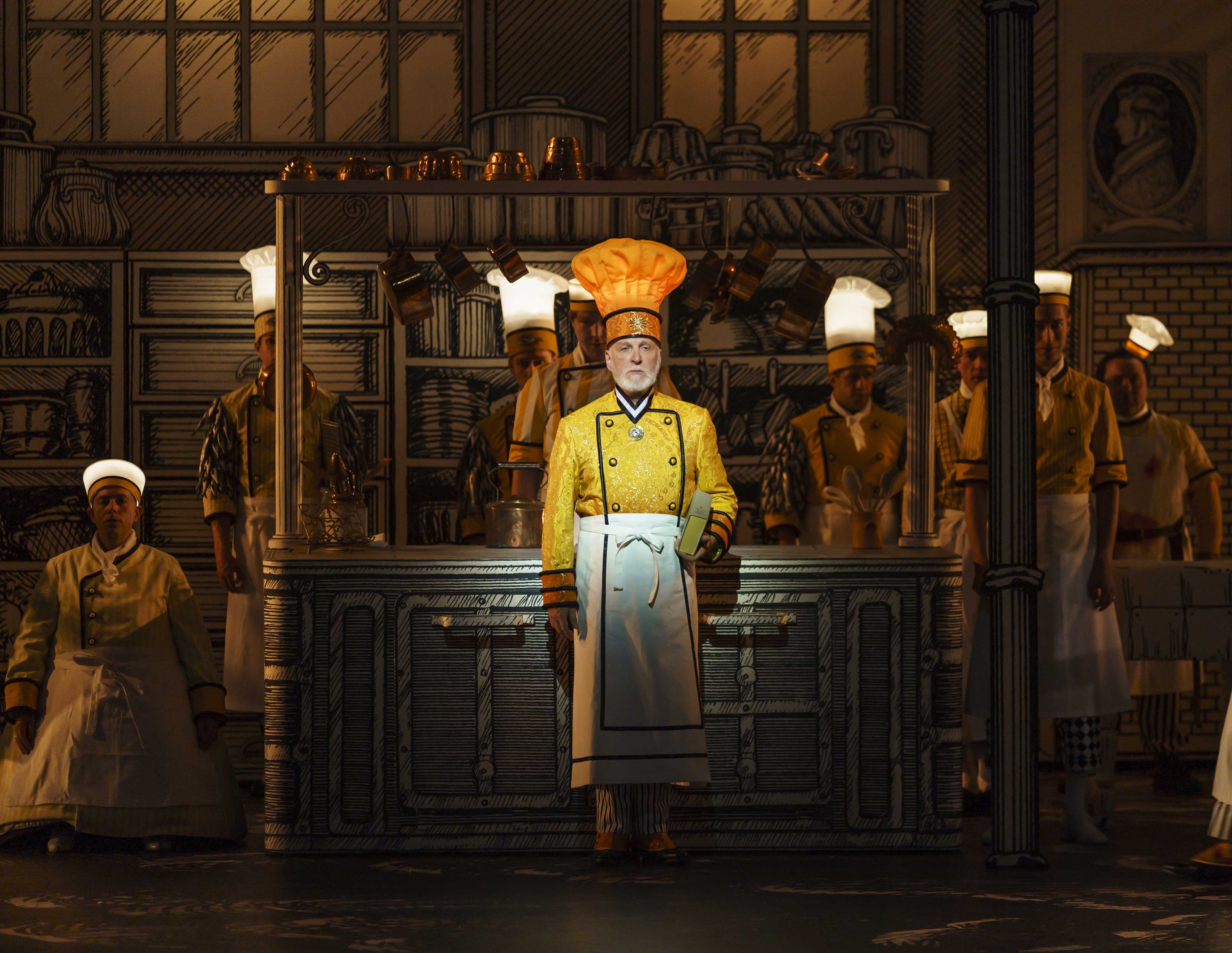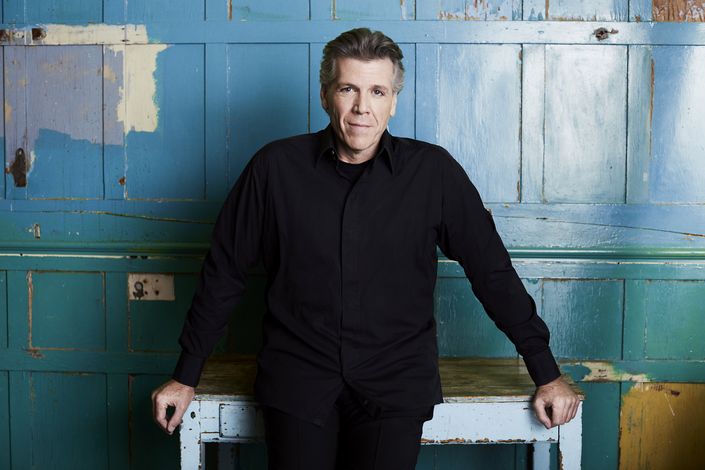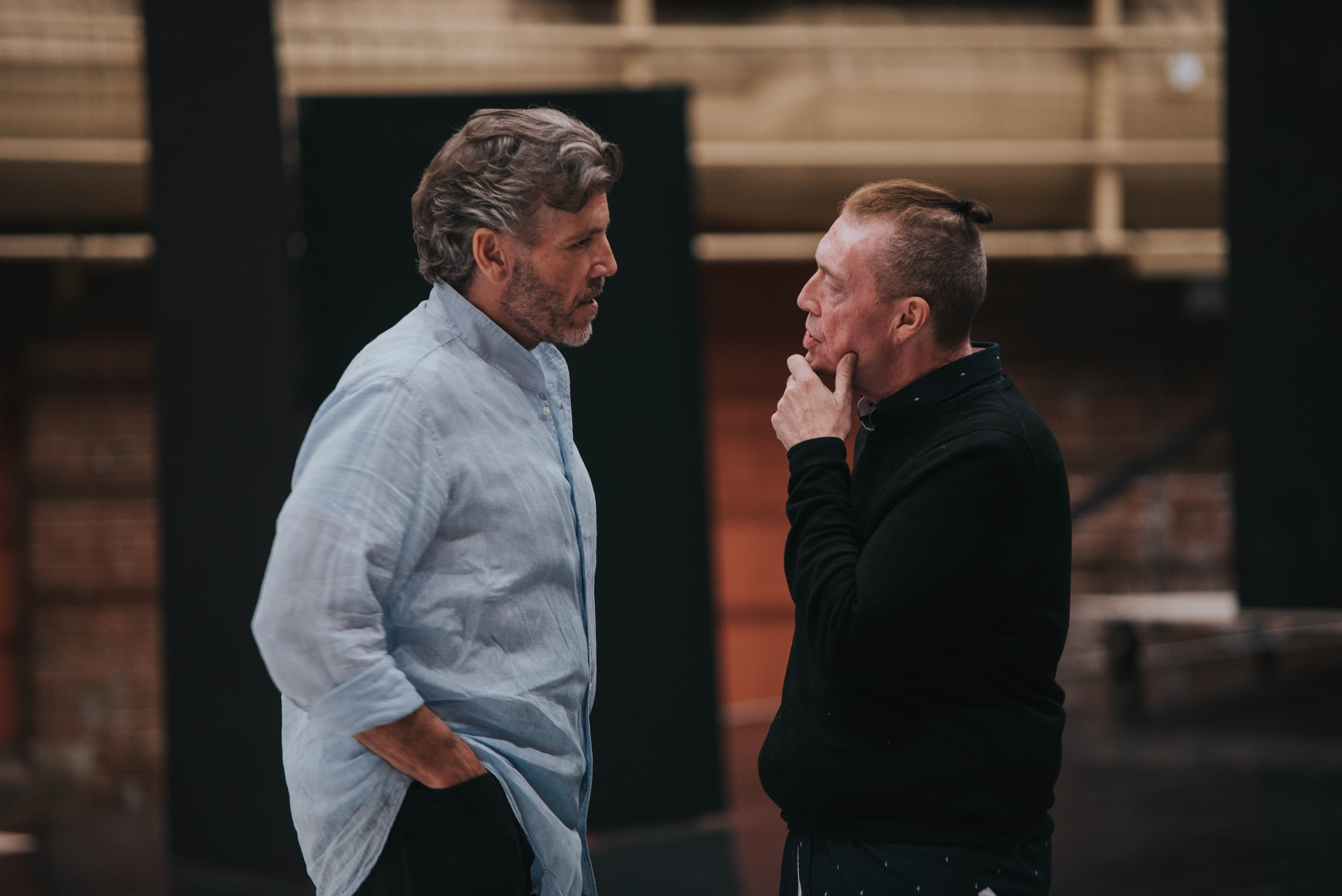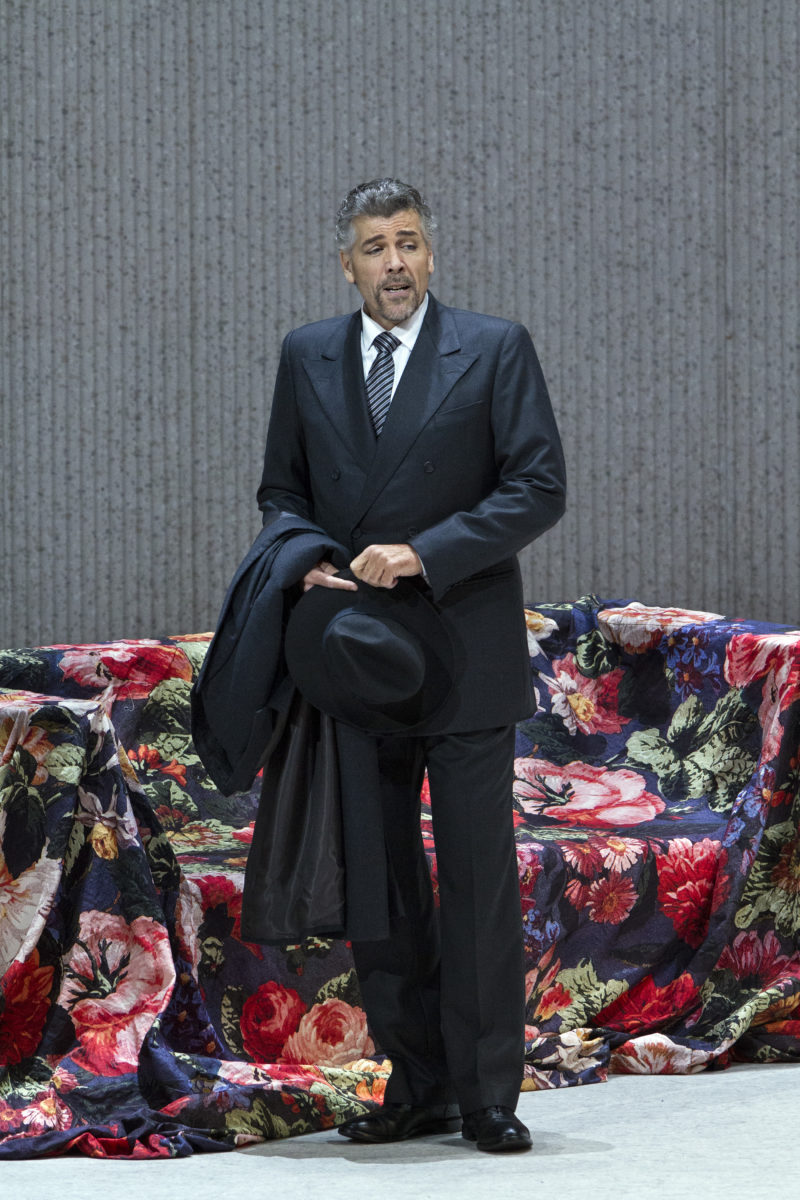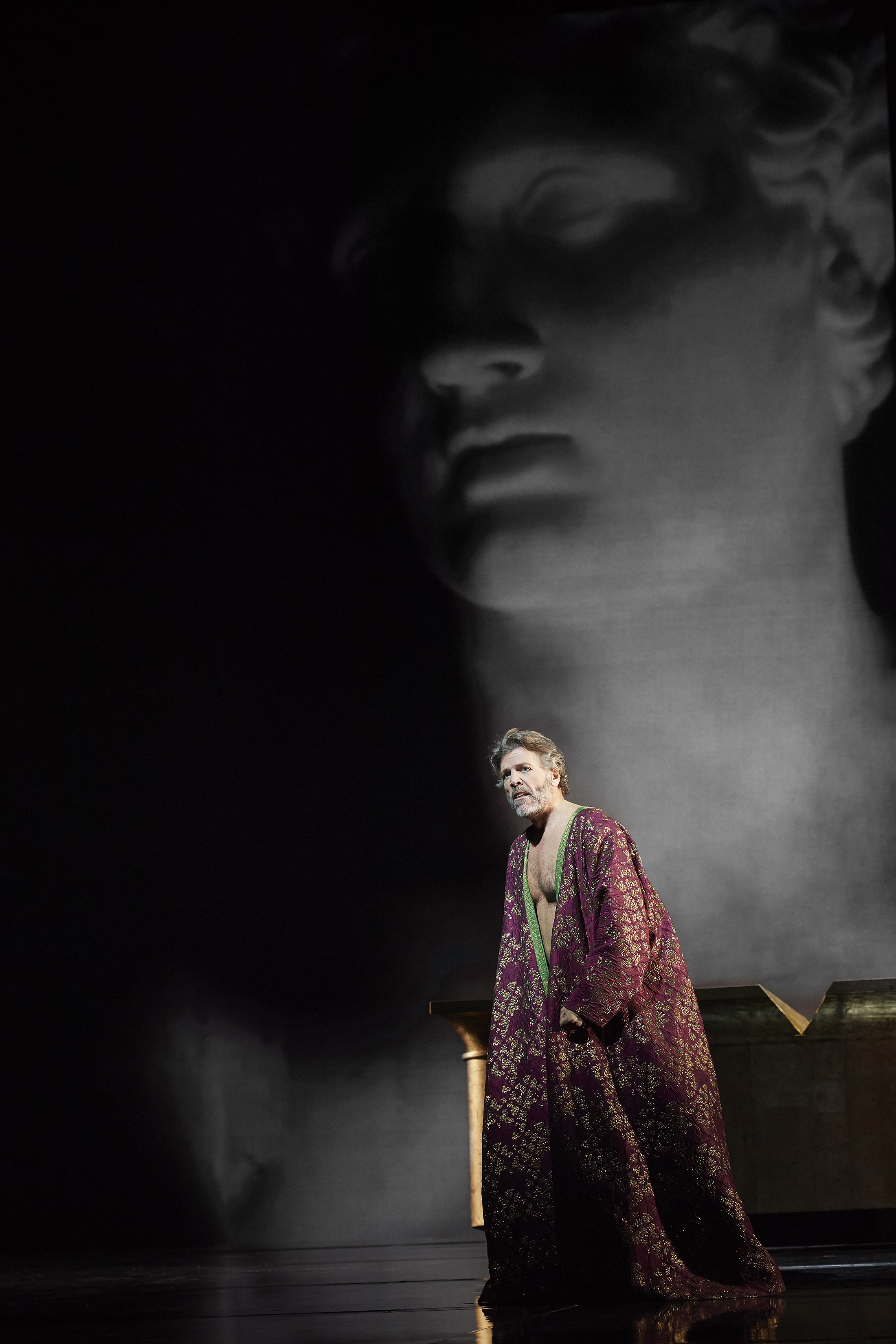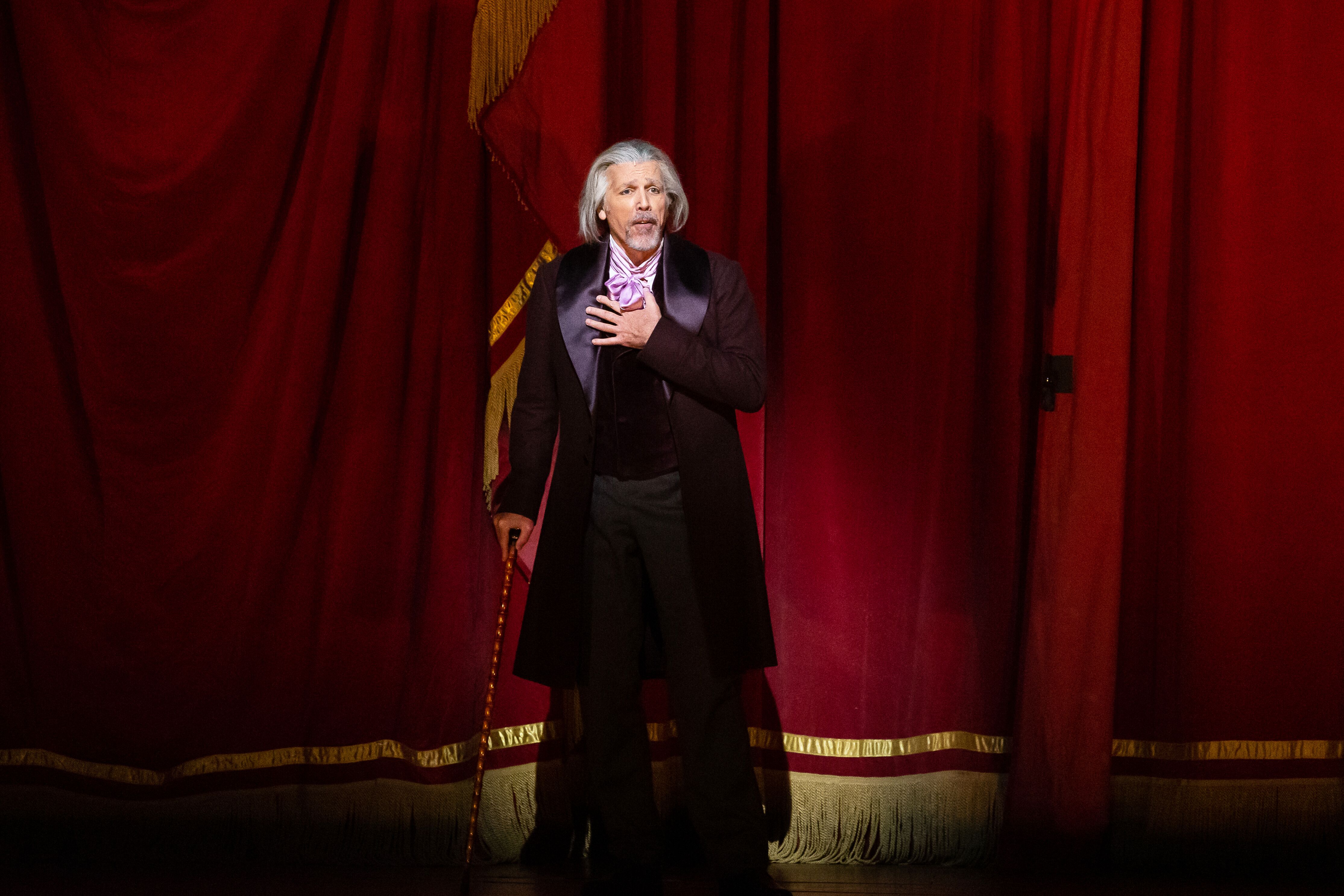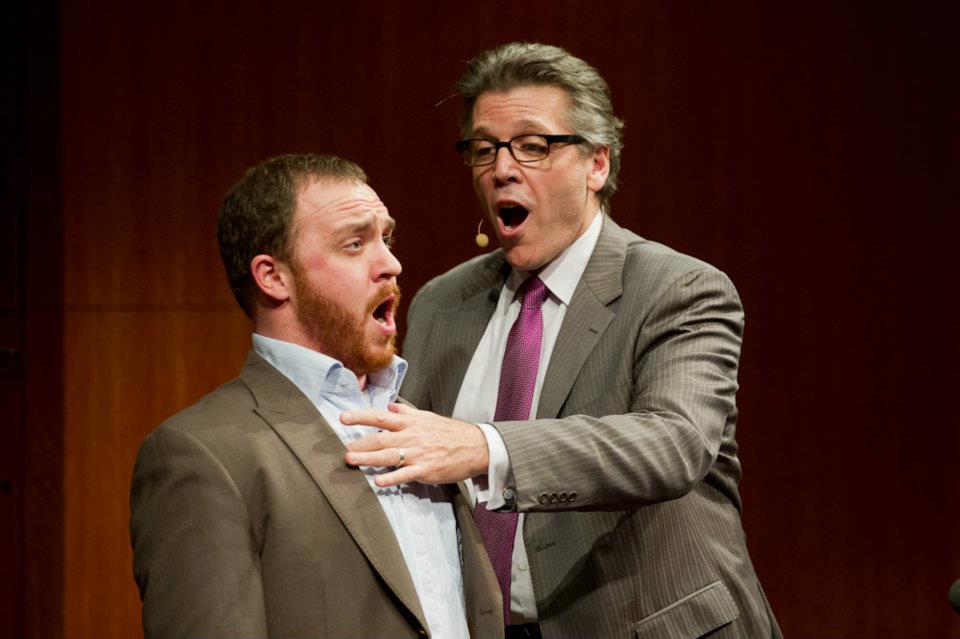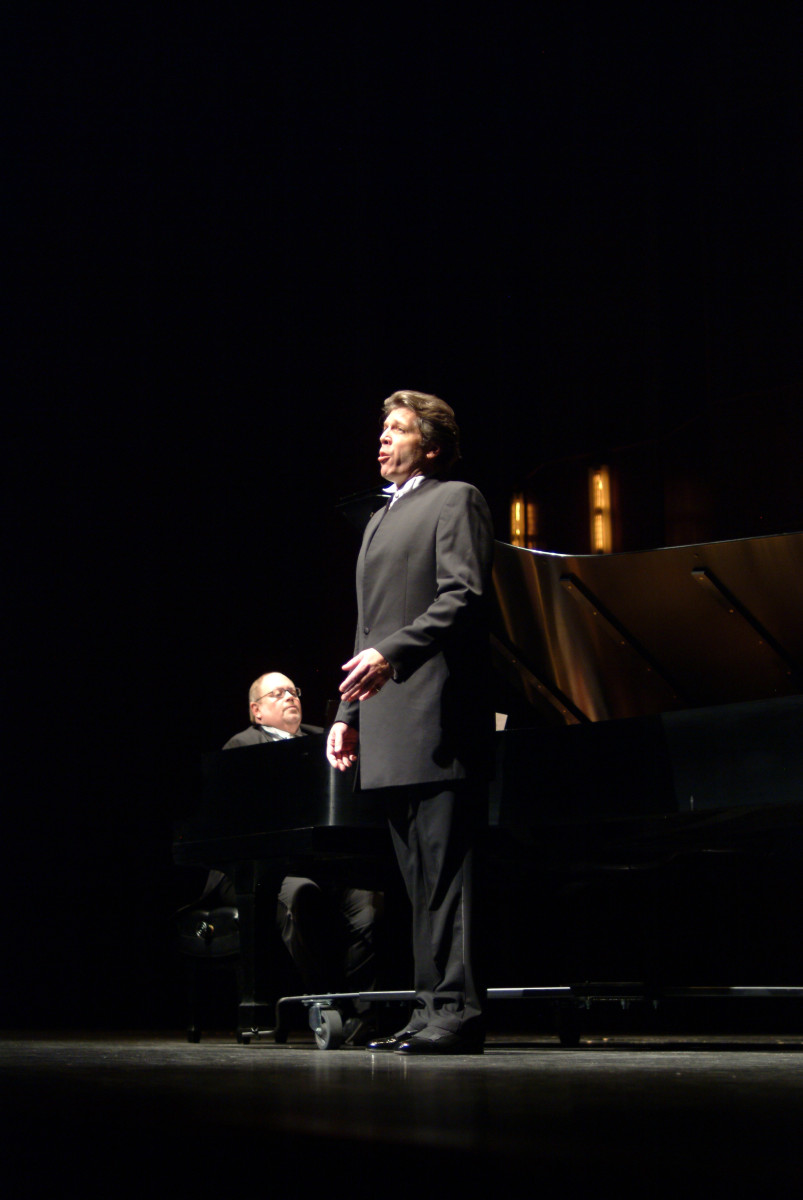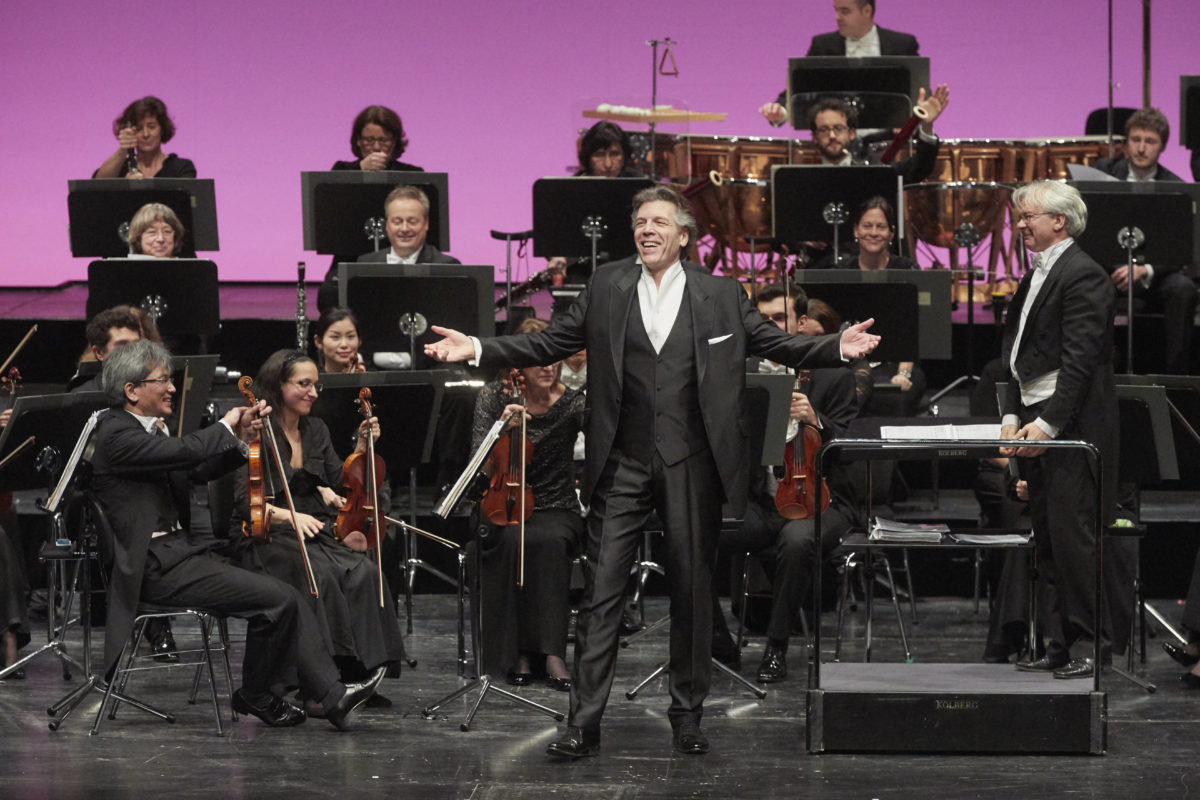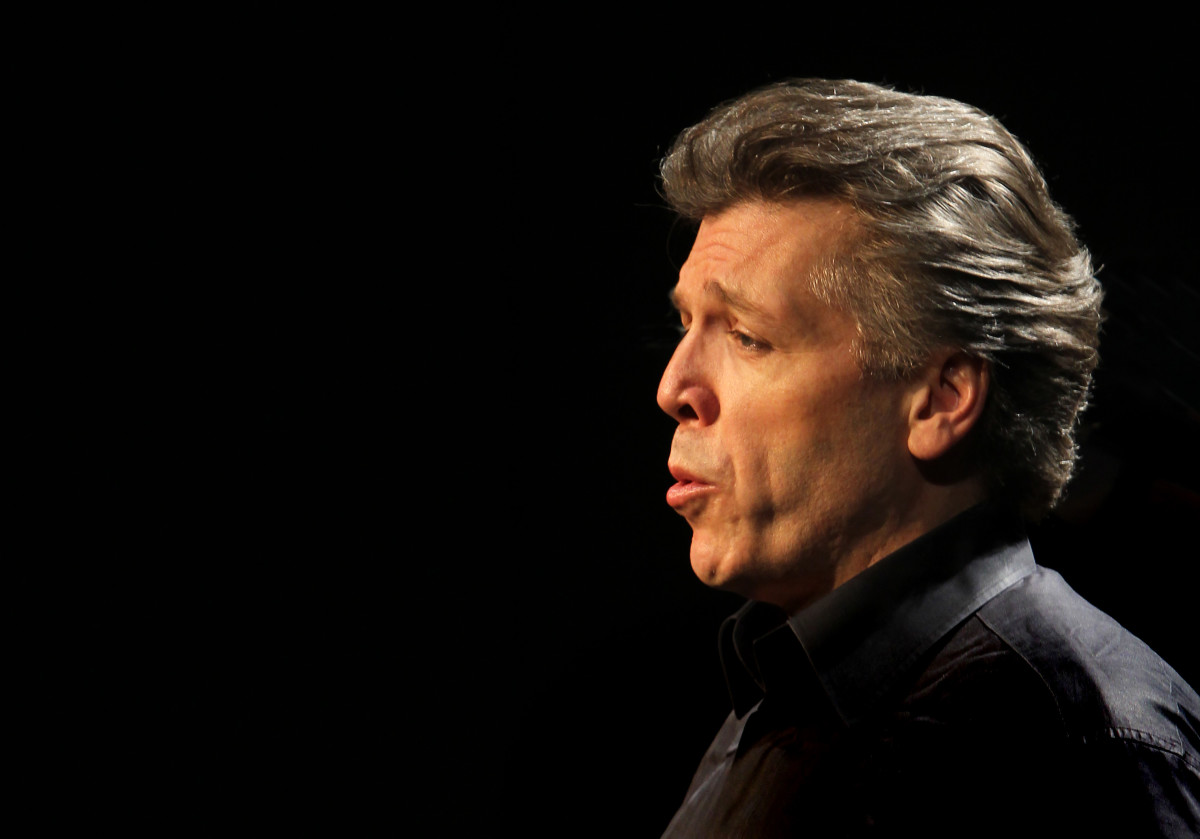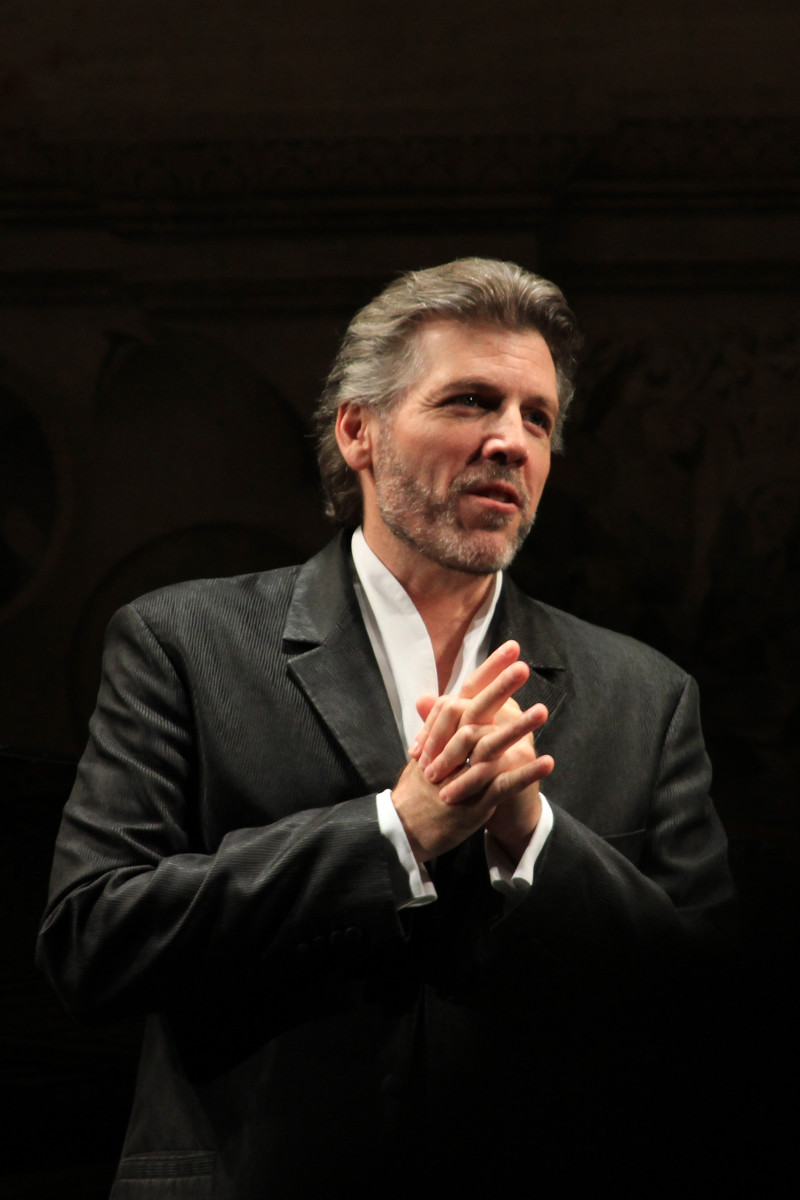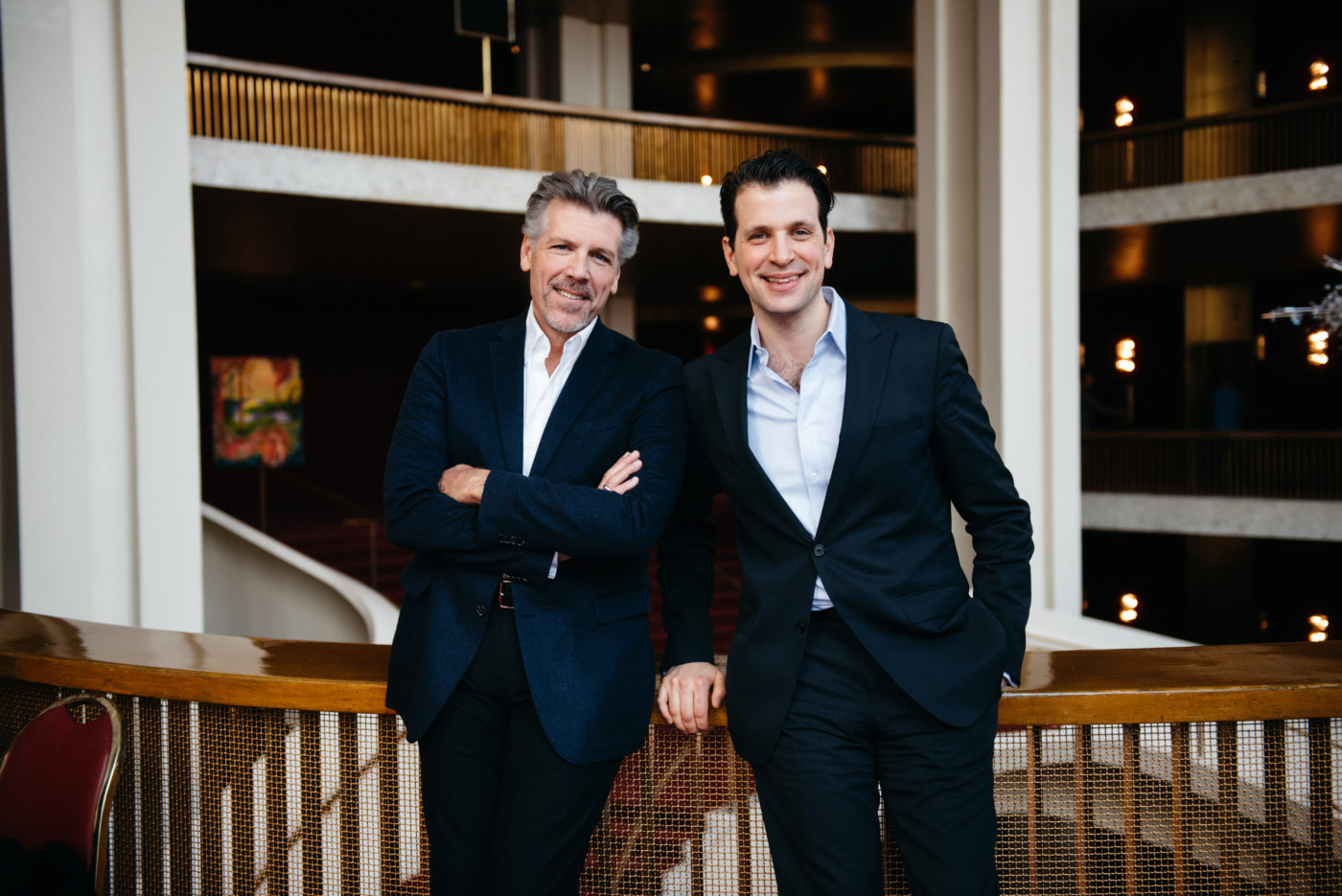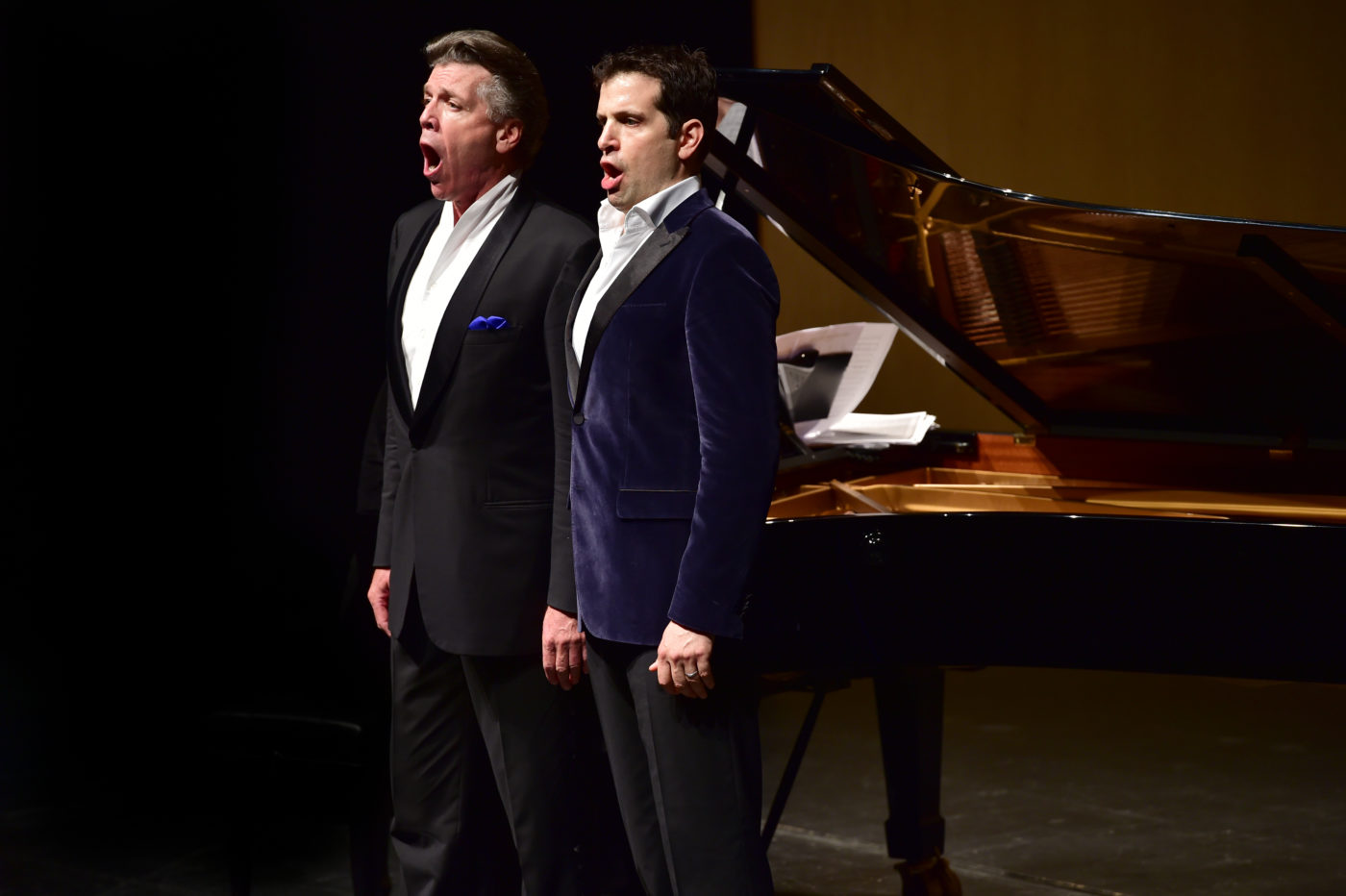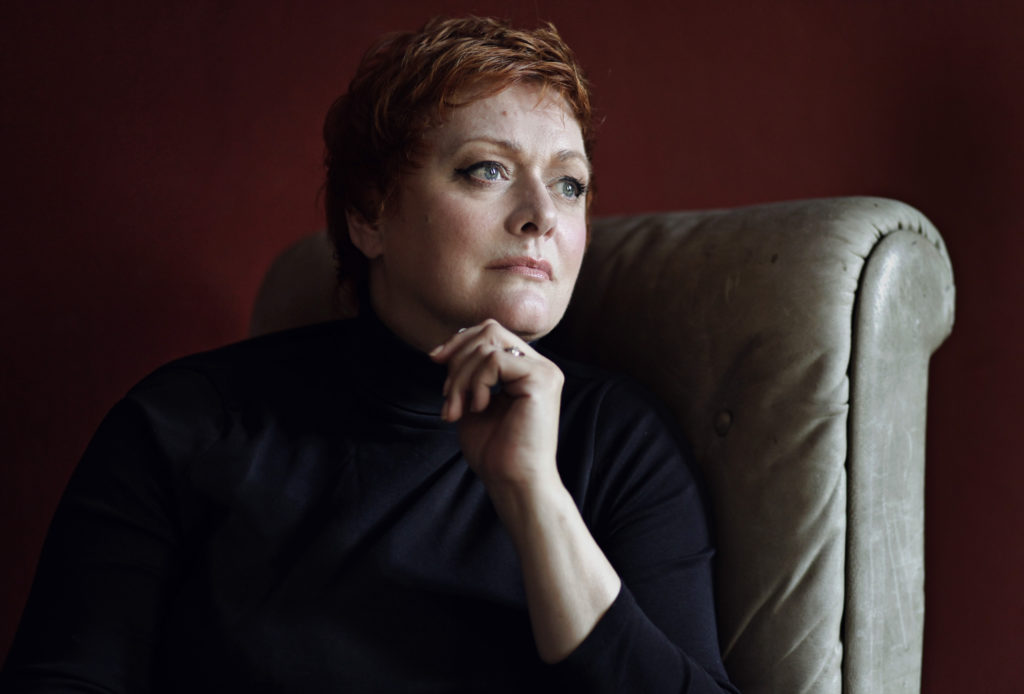
Photo: Uwe Arens
Lately I’ve been gravitating toward the work of artists who possess an air of authority, ones who strengthen my resolve to weather the current, rather frightening storms of unprecedented global pandemic. Those artists include sopranos Lyubov Petrova (that conversation posted recently), Chen Reiss (who I spoke with in March 2019; expect a new conversation soon), and Catherine Foster, an artist who didn’t start out in the opera world, but in healthcare. That former life still provides the Midlands-born soprano with a steady stream of onstage inspiration.
Foster is known for dramatic repertoire, and has built a career performing the music of Strauss, Puccini, Verdi, and most especially Wagner. She recently made debuts as Leonora di Vargas in Verdi’s La Forza del destino (at Oper Köln) and Eglantine in Weber’s Euryanthe with conductor Marek Janowski, as well as Die Färberin (the Dyer’s Wife) in Die Frau ohne Schatten at Nationaltheater Mannheim in 2019-2020. Cultural review site Die Neue Marker proclaimed in its review (translated from its original German) that throughout the sumptuous Strauss work, Foster “increased her modulation-rich soprano, always present in all registers, to stratospheric heights, combining soft colouration with persistently powerful yet always round vocal attacks. Her phenomenal ability to span large dramatic arches with unbroken intensity, without any technical losses in the constant focus of the harmony of her expressive soprano timbre, is spectacular.”
Until today (Tuesday March 17), Foster had been set to make a highly anticipated return to her native UK for the first time in two decades, for an in-concert performance of Elektra on Wednesday (March 18th); because of the corona virus, those dates, like almost if not all of the events in the classical world, have now been canceled. Elektra was to have reunited Foster with conductor Kiril Karabits (who she previously worked with touring Mahler’s Fourth Symphony) and she was to have performed with Bournemouth Symphony Orchestra (BSO), having been hailed as “the world’s best Elektra.” Prior to the cancellation, Foster had been upfront on her Facebook page about her feelings performing amidst the current corona virus pandemic, writing that “Elektra is a tumultuous journey at the best of times but this has added a new dimension.”
Listening to her robustly elegant soprano, one is struck by a sound that possesses shades of authority, delicacy, strength, and vulnerability, warmth and expansiveness, in ever-shifting varieties like reanimated bronzen shards threaded into an El-Anatsui work; glinting, shimmering, shifting, ruffling and revolving, it is a timbre, which, no matter the repertoire, allows a dramatically complete picture. Her path to music was formed early. As soon as I could talk I was singing, according to my mother!” she said in 2009, and indeed, Foster went on to sing in the local choir in her youth, becoming lead chorister at 15. Another vocation beckoned however, that of nursing, and Foster’s training eventually led her to become a midwife. Singing in her spare time in an amateur choir, inspiration to return to music came via a conversation in a delivery room, which then led to singing teacher Pamela Cook, the co-founder of Cantamus, a celebrated all-girls choir based in Mansfield, Nottinghamshire. Cook recommended the budding singer for an audition at Birmingham Conservatoire, where Foster studied for two years before graduating. During her studies she was awarded the Dame Eva Turner Award, which allowed for a year of post-graduate studies at the Royal Northern College of Music.
In the late 1990s, Foster worked with the Welsh National Opera, Opera Northern Ireland, and English National Opera, before being faced with the tough decision as to whether or not to relocate abroad. Foster was a newlywed but also determined to keep going as a singer; moving to continental Europe was done of necessity, as is so often the reality with life in the classical world. Recalling the decision in a 2018 interview with The Standard, she said the situation in the UK was “like a closed door, I’m too tall, I’m too blonde, I’m too this, I’m too that…”. Moving to Germany, Foster found the gruelling-if-necessary experience that formed the path for a natural expression and expansion of her creative abilities while integrating all the wisdom and experience (not to mention work ethic) from her nursing days. Through her time with the Deutsche Nationaltheater and Staatskapelle Weimar (from 2001 to 2011), she sang a variety of roles and styles, including Mimi in La bohème, Turandot, Elizabeth in Don Carlos, Abigaille in Nabucco, Leonore in Il trovatore, Sente in Der fliegende Holländer, Elizabeth in Tannhäuser, Leonore in Fidelio, and of course, Elektra. “I was working with an A-class orchestra and ensemble on a daily basis” she told The Times in 2013.
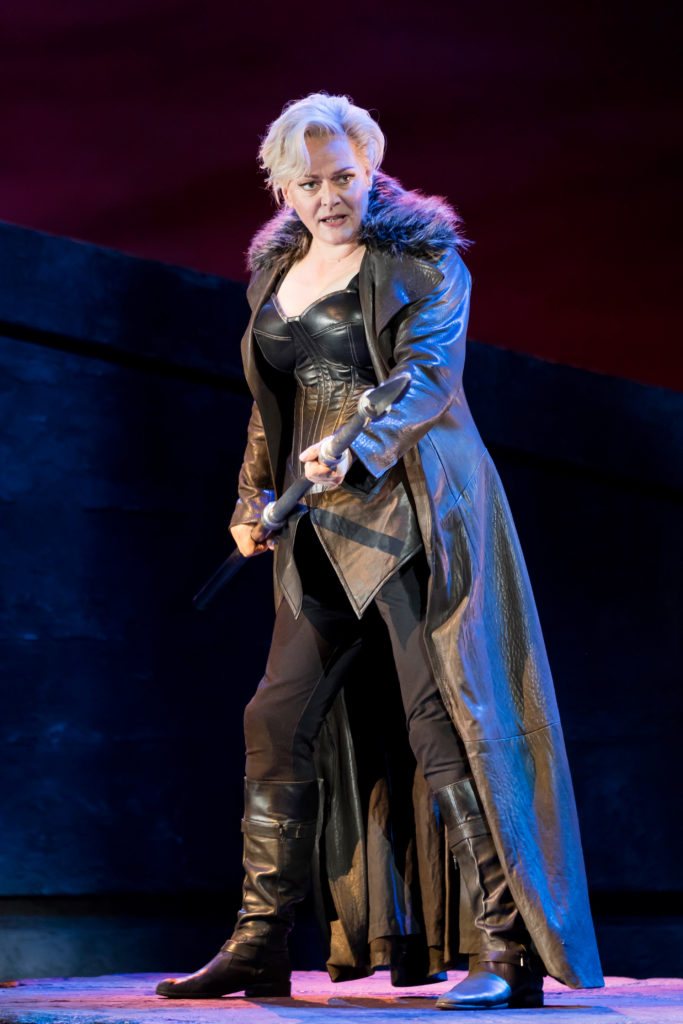
As Brünnhilde at Washington National Opera. Photo © Scott Suchman
It was amidst such varied creative experiences that she first encountered Brünnhilde, Wagner’s irrepressible heroine, in 2007 at Nationaltheater Weimar (released on DVD). Since then, Foster has become associated with the role and has appeared in a myriad of Ring Cycles – in Weimar, but also with Oper Köln, Aalto Theater Essen, Staatsoper Hamburg (where she recorded it with conductor Simone Young), Washington National Opera, Staatsoper unter den Linden (Berlin), and Gran Teatre del Liceu Barcelona, to name just a few. Of her 2013 performance as Brünnhilde with De Nederlandse Opera in Götterdämmerung (under the baton of conductor Hartmut Haenchen) it was noted that “it isn’t difficult to understand why Catherine Foster has become a much sought-after Brünnhilde in opera houses around Europe. Her voice is well-projected with beautiful high notes that easily cut through the orchestra.”
For Wagnerites – practitioners and fans alike – few places are more special than Bayreuth. The composer founded the Bayreuther Festspiele in 1876, conceiving and designing the house expressly for his own works’ presentation, most especially for the immense Ring Cycle. Foster’s first opportunity to perform at famed festival came when the festival’s co-director, Eva Wagner-Pasquier, having previously seen Foster perform Brünnhilde in Riga. The 2013 Ring Cycle production that marked Foster’s premiere Bayreuth appearance was directed by Frank Castorf and led in the pit by Kiril Petrenko, in a modern (and not entirely popular) staging. Foster went on to appear at the famous festival for five more consecutive seasons and took Brünnhilde took Hungary as well, where she performed with conductor Ádám Fischer and the Hungarian Radio Symphony Orchestra, Hungarian Radio Symphony Choir, and Budapest Studio Choir at Budapest’s Müpa: Béla Bartók National Concert Hall. In a review of Götterdämmerung from June 2019, Bachtrack’s David Karlin noted that the soprano “can hit a high note with laser precision from a starting point anywhere in the stave below, sustain it as long as she wants and do so without ever going shrill. In the Act 3 immolation scene, she made good use of all that power, but also projected pianissimo clearly, fixing the audience with such a piercing stare that it felt as if she was singing to each listener directly.” Foster received the London Wagner Society’s Reginald Goodall award in 2018. With any luck, she’ll be returning to Budapest in June for a full Ring Cycle, part of a full 2020 slate including Turandot, Tristan und Isolde, Die Walküre, a Verdi opera gala, and a return to Deutsche Oper next season, as Senta in Der fliegende Holländer.
Much sooner however, was to have been a return to native soil, March 18th at Lighthouse, Poole, and March 21st at Symphony Hall, Birmingham; those dates hae been canceled. Along with Foster, Elektra in concert was set to feature Susan Bullock as Klytämnestra and Allison Oakes as Chrysothemis; students from Royal Birmingham Conservatoire and Trinity Laban Conservatoire were to form the chorus. The performances, and the planning and preparation around them, were two years in the making. We had the opportunity to chat in late February, before the pandemic was a real threat in the classical world and beyond. Foster was at home in Weimar, corralling her dogs (“Come in sweethearts, it’s getting cold out there!”) and eagerly preparing for Elektra. We enjoyed a lively conversation in which the jovial soprano mused on everything from learning German to real-life inspirations from her nursing days. Despite the cancellations, there’s tremendous value in sharing her ever-evolving thoughts around the Ring, new and not-so-new roles, and her evolving relationships with conductors and directors. Foster also discusses why she has no bitterness toward having to leave her home country, and why tough circumstances can sometimes provide unexpected pathways – telling and oddly prescient words for our current tough times. As you’ll read, Foster, while heartily embracing the high-art aspects of the job, keeps her feet planted firmly in an earthy authenticity, one that elevates her artistry while underlining her warm humanity – a balm for our times indeed.
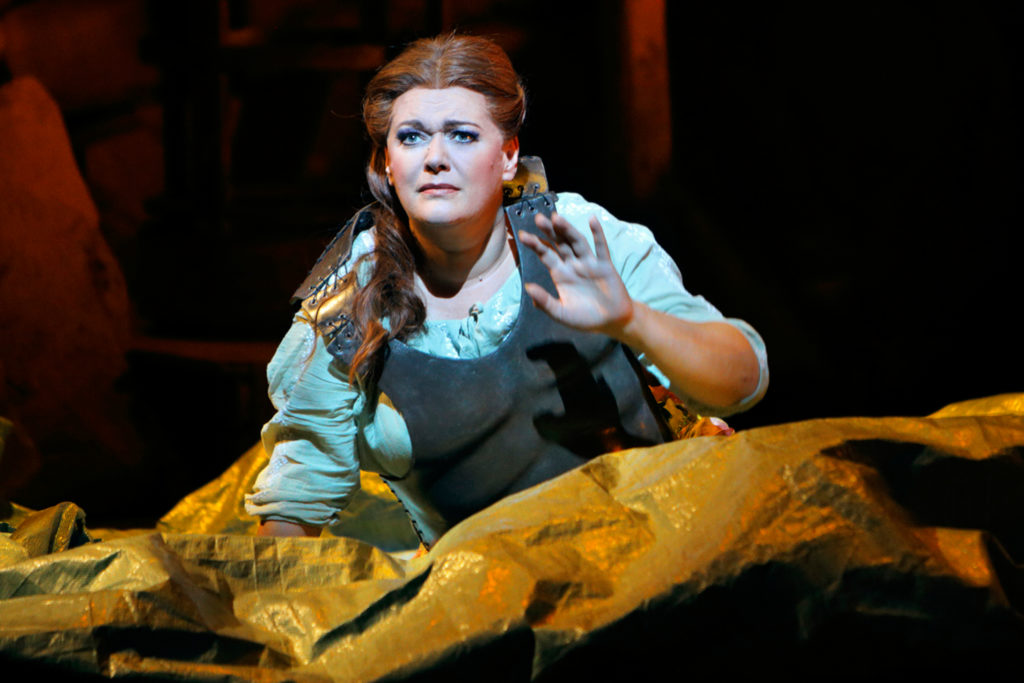
As Brünnhilde at Bayreuther Festspiele. Photo © Enrico Nawrath
When you moved to Germany in 2001, is it true that you didn’t know the language?
I could ask for a cup of coffee and that was it.
“But please don’t respond because I don’t know what you’re saying!” I can relate.
Yes, entirely! I remember coming here and no one spoke English back then. It was only in 2006-2007 that I first heard English on the street, but it was the best (environment) for me. My husband bought me a TV for Christmas, this really old-fashioned, huge thing, and I put Teletubbies on, and watched a bunch of very American series dubbed in German, and I had this book — the internet wasn’t out yet you couldn’t Google anything — that sat at the side, and I’d look up phrases: “Don’t shoot!” and “Don’t move!” It was an experience.
I never wanted to sing in the German fach; I just fell into it when I started having singing lessons. I never wanted to do opera or especially Wagner — I thought it was way too long! But now I absolutely adore the German language and adore singing in in German. I’m studying Elektra, and doing it of course in Britain, uncut, and what (Hugo von) Hofmannsthal does in the text is unbelievable; the nuances you can get out when you know the language, the colours you can put into the voice because you’ve not parrot-fashioned the words on top of what it means. You know precisely how things sit within the structures of a sentence.
Speaking of knowing structure, you’ve sung Elektra a few times…
I’ve sung it 52 times so far.
… and you’ve frequently performed the role of Isolde as well, including earlier this year in Bologna. When you start a new production is it a blank slate creatively, or do you think, “I can use this from here and that from there” and re-contextualize accordingly? What is the process for you?
The thing is, if you work with a Schauspiel director, for plays and things like that, then it is traditional that the actors and actresses don’t come having memorized their role, they memorize it during the rehearsal period. You can’t do that with an opera; it isn’t just words you’re memorizing, it’s music as well, and you have to be prepared, so of course you have your own ideas. But what I do find is that they mature, these pieces and roles mature like a good wine; you need to let them lie a bit. No matter how much you try with the first run, there’s no way you can actually know everything about the role, or know everything about a character.
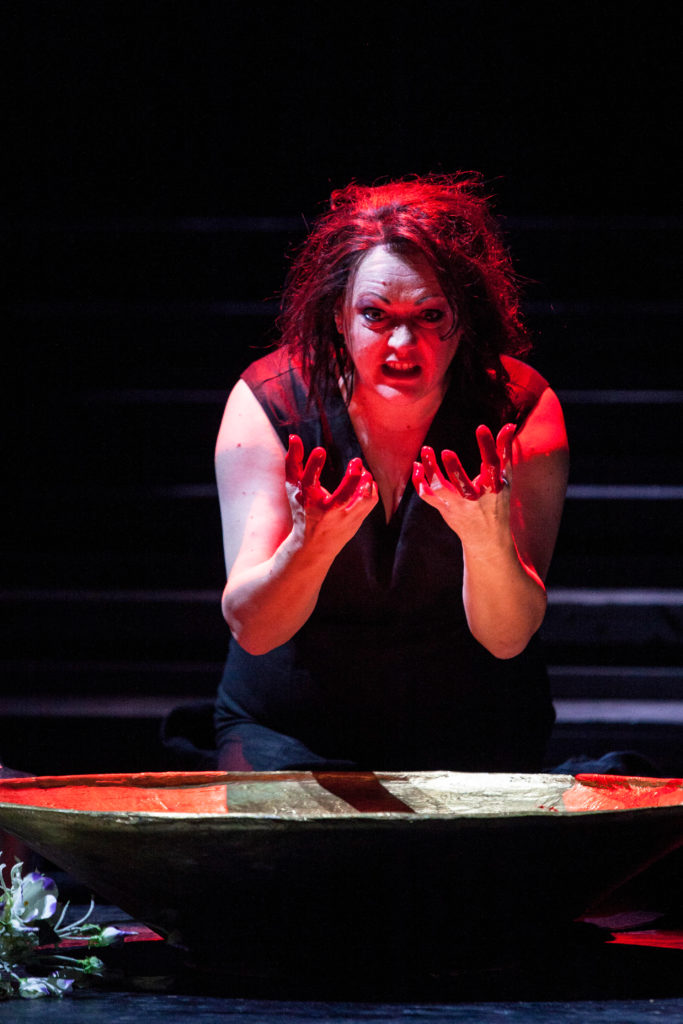
As Elektra in Wiesbaden, 2016. Photo © Sven-Helge Czichy
For example, I’m doing Elektra uncut this time, and there’s six pages that I’ve never performed on the stage; I was going through it with my pianist yesterday, and I can tell vocally when I get to the point where I finish the bit I’ve already done on stage, then I do the uncut bit and go back into the (existing bit) — the body knows where it’s going and it’s a lot more comfortable. It’s like driving a car; when you change cars you have to think, “Where is this part going? The gears feel different…” but after a while it becomes second nature. When you’ve got that part done – all the nitty-gritty bits – and you know where you’re going and how, then you can start putting other layers on top.
For a new production, it’s the singer, the conductor, and there’s a director; those are three people who come together. The conductor has his idea of the music; the director has his concept; the singer comes with their ability to sing the role and some ideas. But if you don’t want a different concept there’s no point in employing a director – it’s our responsibility to listen, and to try and make that concept work on the stage, which, nine times out of ten, you can. The odd one you think, “Hmmm” but that’s very rare. I can count on one hand productions I’ve done that I just don’t get it from the inception, but I think the more mature you are with these roles, the better it is, and it’s a lot more comfortable for the audience and you can start to play with it even more.
My Elektra is based on three patients I used to look after when I was a student nurse in training; I had to do six months in the psychiatric unit, and I remember three wonderful patients who never went away out of my mind, so I use those memories. And if you look at Hofmannsthal when he wrote Elektra, he studied women in these asylums and how they were, and that’s his way of writing what these three ladies are all about. I find it very clever.
It’s fascinating that you directly relate your work on Elektra to your work as a nurse – there’s an air of authenticity that seems discernible throughout your work.
For me that’s what acting is. I’ve never had acting lessons, so I do take my previous experiences and use them. There’s a part when I go onstage where I have to find it in me. But… what does that really say, when I love Elektra?!
It means you combine imagination with experiences in the real world; the connection with the quotidian is clear.
If you think about a character like Brünnhilde, that role has been with me almost as long as my daughter has, and to me it’s (the story of) a young girl growing up. If you look at Wagner’s heroine, they are the ones that save the world; the men don’t save the world, the women save the world. So Walküre is very much based on a young teenager whose daddy is everything – whatever daddy says goes – and she’s probably been in that state for thousands of years…
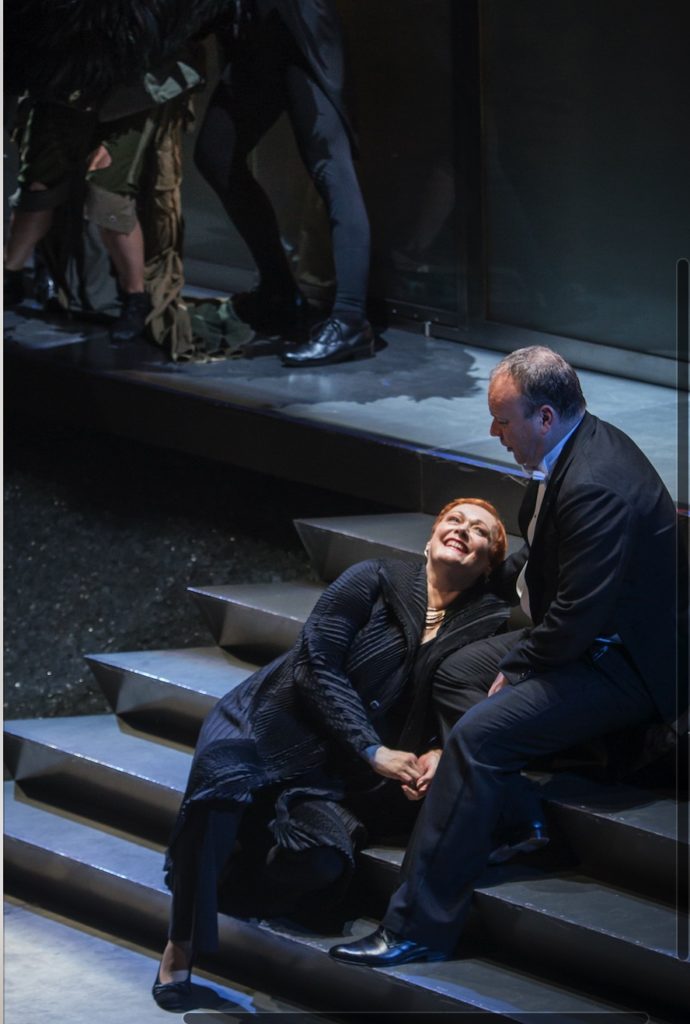
With Johan Reuter as Wotan in Die Walküre. Photo © Szilvia Csibi, Müpa Budapest
In suspended development.
That’s right. Then she starts to question things, and that’s when he gets angry, and that (reaction) also happens to be real. It makes me recall a relationship of mine in the past, and how, when I started to question what this person was doing, things got violent and angry. I always say Wotan gave Brünnhilde the power of love, but he himself has the love of power, and that’s the difference between the two; she can grow and mature because she’s learned to use power through her love, but he can’t change because he’s only in love with power. So therefore he’s unable to move on but she can move on, and therefore sacrifice. Siegfried is a testosterone-driven boy; it’s all about him, and about them getting together. It’s a prenuptial wakeup call.
I’ve think of Siegfried as the vehicle through which Brünnhilde achieves an actual sensual experience of the real, human world; she needs to have that experience, with all its interconnected pleasures and pains, so one world can end and another can begin.
You could also say he really can’t come into existence without her.
True! The awakening applies to both of them but the way it manifests is so different for each.
And I believe Brünnhilde, much as she was born of both Wotan and Erda… well, fate decided she had to be born; everything has its own time, everything has a beginning and an end, and this is Wotan’s end, so she was born, but of course she saved Siegmund and Sieglinde, and how much did she fall in love with Siegmund (in anticipation of) Siegfried – is that why she did what she did? It’s like Siegfried had to happen and he is the vehicle for her realizing what she has to do.
Yes, Götterdämmerung doesn’t abruptly end when Siegfried dies; we have to see her through her journey.
Brünnhilde says it herself: “I had to betray the person I loved the most to realize what I had to do.” The thing is, the Ring is cursed, everyone who touches it has to pay a price, even if you didn’t take it voluntarily; Brünnhilde took it out of love, Siegfried didn’t have a clue what it was about, Wotan did sacrifice something but not his life. The curse is ever-transferring, and essentially Brünnhilde says to Wotan, “I know what you did: you gave me the curse. So I will follow this through now; I will do what you should have done, and so goodbye, father! Valhalla is going to burn as it should have done already. You asked me to finish this and I will finish this” – and she does.
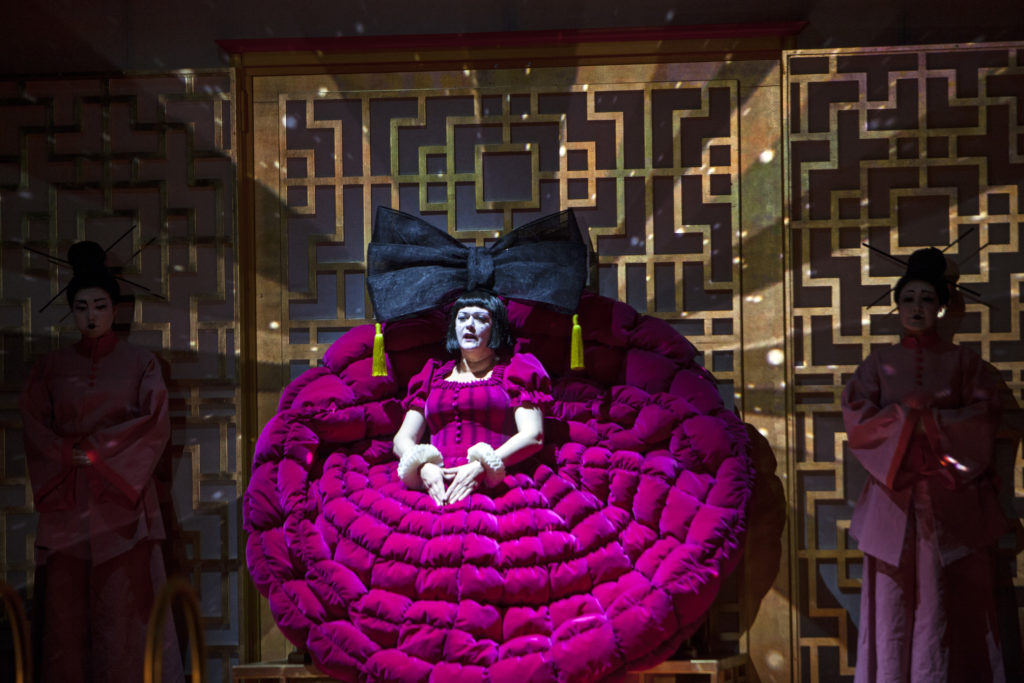
Turandot, Oper Köln. Photo © Bernd Uhlig
You have a history with Brünnhilde, and with Turandot, though her self-realization at the close is far less clear.
Oh, she doesn’t change! She is psychotic as far as I’m concerned! I don’t know what’s happened in her past to make her like she is, but I’ve done the Lydia Steier production – I’m going back this year to do it again – for me it’s fantastic, one of the best. We developed it together. When we did it, Lydia had this great idea that it’s all set like Big Brother if you like: they’re on an island, they don’t have a lot of money but have found a way of making money by advertising that someone can marry this Princess if they can solve three riddles, then it’s the sidekick who comes on and does all the organizing, and then on comes Calaf.
Now, every Calaf always wants you to believe he’s a nice guy; he is not a nice guy, otherwise he would not stand there and let Liu get tortured. He’d say his name and then, “Please, don’t torture her, don’t cut her hands off!” But because he’s also the son of a king, he doesn’t care whether he lives or dies, and this is what Turandot sees in his eyes, this “I don’t care, it doesn’t affect me” attitude, which really unsettles her. You have the Third Act which I don’t think is about love or anything about that; it’s all about power, and I think he has had such a rush, if you like, that he’s won that he plays with fire again, but he doesn’t come to Liu’s rescue. This is what I like about Lydia’s production – there is no sympathy, this character doesn’t know how to give that. She doesn’t really change; it’s a question of whether she’ll carry on or not.
You’ve been in some contemporary productions, including a staging of The Ring by Frank Castorf at Bayreuth. What’s it like to be part of Regie presentations?
The thing I always ask is, does it tell a story? Or do you have to have a book of notes to tell you why you’re doing certain things? There was a lot of controversy over the Castorf ring and I was asked why the public didn’t like it; I said that’s not for me as a singer to answer, the direction is personal taste. My husband came every year for six years and he saw the Castorf staging, and it grew on him, he said because there was so much on the stage you had to pick one thing you looked at and just watch it. I also met a lot of young people, in their late teens to early 20s, who absolutely adored Castorf and they said something very interesting: he makes you discuss it, and whether you love it or hate it, he makes you discuss it, so therefore, he’s won. It’s relevant whether you like or dislike it; you need to think about it. and I thought, that’s an interesting point of view.
As Brünnhilde at Bayreuther Festspiele. Photo © Enrico Nawrath
So the contemplation is what matters, not the knee-jerk reactivity…
Yes, that’s what matters; he makes you think. It doesn’t matter that he made the gold oil – what is it that people want today? It’s oil, so he made the gold oil, but you know, if you can stay true to the music and the character then you can take The Ring and put it anywhere in the world, at any time, in any period. You can make it a family saga, a country saga, a world saga; it’s basically love, hate, money, power, it’s who is in charge. Castorf had a lot of symbols in his (production), which came from growing up in the DDR. People not from the DDR didn’t get, but anybody I invited to come along who’d grown up in that said, “Oh my God, that is so clever!”
Applying your car metaphor to conductors, I would think some maestros provide different styles of roads and gear shifts and signposts; sometimes you know the route but others want you to use a whole new highway.
Yes, you start again! I’ve experienced The Ring on the whole with about 32 conductors, and they fall into two categories: either they’re extraordinary experienced, or it’s a first time, so there’s a desire to always try to find something different. The experienced know how to let an experienced Wagner singer go. I’ve just been to Budapest last summer with Ádám Fischer and he came off stage and said, “You know, the more I leave you alone, the better you get!” He didn’t try to make me do anything and said he was really inspired after this last Ring. Working with certain singers gives (conductors) different colours. But why does opera still draw people today after centuries of singing and hearing the same roles? The only thing that changes is the people who sing and perform it. (Live performance) has to have something magical, otherwise, if you wanted it exact, go buy a CD, but where’s the magic in that? Every time I’ve ever done a Ring cycle, you have the stage, the singers, and the public, and they come with you, and by the time you finish Götterdämmerung you’ve done a huge journey together of sixteen hours.
How does that translate into new roles? You had your role debut as Die Färberin in Die Frau Ohne Schatten in Mannheim, for instance. Do you have an idea where you want to go with new parts, or is it more of a journey?
Part of my studying and getting to know (Die Färberin) and finding her was having two years to learn the opera. If you do Fest you don’t get two years, you get six months, if you’re lucky, to learn a role. The fact is, I had two years to really investigate (Frau) and do some research. I hadn’t realized it was essentially Strauss’s Zauberflöte, which was a gift with the way the direction was going; the only person I could connect to was Mrs. Bucket from Keeping Up Appearances, which was fabulous – you know, the table had to be set down exactly right, and she catches herself, and tries to be this lady with the hair and everything. Especially in the second act all I could think was, “Mrs. Bucket!!” I’ve been asked to do another production this autumn, so I’m very happy to be able to do it again so quickly. I’ve got to check if it’s cut or uncut.
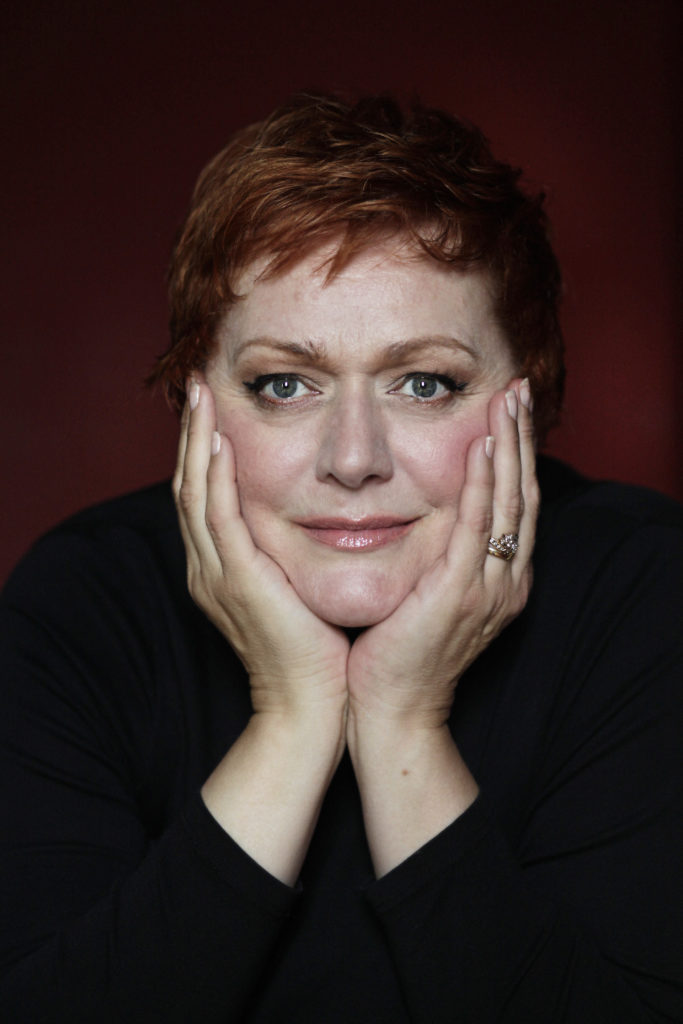
Photo © Uwe_Arens
What are your feelings going back to sing in England for Elektra? Is there any sense of lingering resentment that you had to leave?
No, the complete opposite – if I hadn’t have left, I wouldn’t be where I am now and certainly wouldn’t be speaking German. Things happen for a reason. To me it’s a resolution; I’m coming full circle. I was looking to get on the stage, I wanted to sing, I didn’t even know that Germany existed when I first finished college, it was my singing teacher who said, “Oh, I’ve a pupil who’s just gone to do a Fest contact” and I said, “What’s that?!” and she told me Germany has opera houses in every city – I had assumed it was like Britain.
In 1999 when, literally, I was too tall, too blonde, too this too that, and everybody else was getting work, I thought, “My God, I can’t keep going like this.” I wrote 200 letters, I printed 200 CDs, and I sent them out; I got three auditions, and I got one job offer, and that’s all I needed. You just need one, and that’s what I got, which was in Weimar. I started here in May 2001, and by autumn 2006 I was studying Brünnhilde, literally, and truly, it never occurred to me that I shouldn’t do it. It’s all in how you look at things — what’s the point of resentment? I’m having a very good career. One could argue I have this good career because I didn’t get the work in England, I know several singers who never got the courage to leave the UK because they have just enough work to not actually push them that extra distance away. Sometimes having something taken away or being denied the possibility to do something spurs you into another place – sometimes it makes another door open.

